Discover Crossing Borders with Nathan Lustig
Crossing Borders with Nathan Lustig

Crossing Borders with Nathan Lustig
Author: Nathan Lustig
Subscribed: 51Played: 1,723Subscribe
Share
© Copyright LatamList Podcasts
Description
Crossing Borders with Nathan Lustig: Where I interview entrepreneurs doing startups across borders and the investors who support them, with a focus on companies that have some relationship to Latin America.
203 Episodes
Reverse
For this week on the Crossing Borders podcast, we’re revisiting one of our greatest hits episodes featuring Pedro Pablo del Campo, Partner of Magma PartnersPedro Pablo del Campo is a Chilean entrepreneur and the newest addition to our Magma Partners team. Born in Punta Arenas, one of the most Southerly cities in the world, Pedro Pablo traveled the world in his youth since his father was in the Air Force and then a commercial pilot. From a young age, Pedro Pablo was eager to be involved in early-stage enterprises and has gone on to founding or join early teams of several startups and nonprofits bridging the US and Latin America. In 2016, he joined the Techstars team in Austin as the Business Development Director for Latin America, a position they created just for him.Pedro Pablo has now brought his passion for supporting Latin American entrepreneurship to Magma, where he will be helping manage our portfolio and evaluating future investments for the fund. In this episode, we discuss Pedro’s non-traditional career path, his start in the nonprofit world, how a cold email got him connected to the Techstars network, and what he thinks of the maturing Latin American entrepreneurial ecosystem.Never be afraid of relying on your network Pedro Pablo used to think he knew everything about starting a business until he founded his first company after university. Soon, he realized he knew nothing and that he would have to surround himself with mentors and other successful entrepreneurs in order to succeed. That lesson carried him on to his time in the US when he realized that New York is a lonely place for an entrepreneur without a network.Listen to this episode of Crossing Borders to find out how Pedro Pablo built a network from scratch in each of the cities he has lived in, from Santiago to New York, and finally in Austin. It’s all about adding value, says Pedro Pablo. When you have given someone a bit of value, they are often happy to help you when you need it.The key to bootstrapping a business from Chile? Find the right partnersAfter coming back from New York, Pedro Pablo knew he wanted to find something for himself. He co-founded Visualogica, a design firm, with three co-founders; however, he quickly side-stepped to become CEO of a vending machine company, leaving his partners in charge. This opportunity allowed both businesses to be successful in the end, and the vending machine company was even acquired.Learn more about Pedro Pablo’s experience building a company from the ground up and how he leads a team in this episode of Crossing Borders.The art of the cold emailPedro Pablo reached out to the Chief Investment Officer at Techstars in a cold email while caring for his son at home while his wife studied her PhD. He wanted to tell them about the value of connecting the Latin American and US ecosystems and hoped the global accelerator would pay attention. Using his contacts in Chile, Pedro Pablo provided a network for Techstars in Latin America and helped the accelerator expand, before they had even offered him a position. His advice to new founders: never be afraid of cold emailing people, no matter how high up they are.Find out how Techstars invented a new position for Pedro Pablo so he could help them bring Latin America into one of the largest and strongest entrepreneurial networks in the world.Pedro Pablo is passionate about the potential global impacts of the growing Latin American entrepreneurial ecosystem. He has lots of ideas about how to build the ecosystem, including partnerships with corporate partners in the US and LatAm that will allow for bigger acquisitions that could shape the industry. Listen to this episode to hear Pedro Pablo’s predictions for how entrepreneurs from Latin America could disrupt established markets in LatAm, the US, and beyond.Outline of this episode[1:59] – Where are you working in Austin?[2:27] – Pedro Pablo’s childhood in Punta Arenas and Santiago[4:04] – Did traveling at a young age impact your perspective on the world?[6:32] – Studying business in Chile[7:07] – What was your first experience with an earlier-stage company?[9:35] – What were some of the biggest takeaways from your time at Late?[10:28] – What did you do after Late?[12:40] – Doing business in New York vs. Chile[15:11] – Why did you go back to Chile after New York and what did you end up doing there?[17:44] – Why “boring” businesses are a good investment[21:02] – How did you end up in Austin?[26:24] – How did you create your own role at Techstars?[31:42] – Biggest lessons from working at Techstars[35:50] – How to motivate corporations to pay attention to entrepreneurship without using fear[40:36] – On Falabella’s acquisition of Linio[43:54] – What are some of your favorite books, blogs, podcasts, or documentaries you would like to recommend?[46:30] – Pedro Pablo’s advice to his younger self[47:18] – What are you most excited about working on to help entrepreneurs in LatAm with Magma over the next 6-12 months?Resources & People MentionedTechstars acceleratorStart-Up ChilePuro Chile – Chilean shop in New YorkLateVisualogicaNever Split the Difference (BOOK) – Chris VossVenture Deals (BOOK) – Brad FeldStartup Communities (BOOK) – Brad FeldAlex Iskold’s BlogThis episode is brought to you by ProColombia, the agency behind the many products and services of Colombian origin that share flavor, design, creativity, quality, and well-being with the world. Learn more about Colombia’s diverse offers by visiting https://b2bmarketplace.procolombia.co/
For this week on the Crossing Borders podcast, we’re revisiting one of our greatest hits episodes featuring Rebecca Fischer, cofounder and CEO of Divibank.Before Divibank, small and medium enterprises in Brazil only had two financing options: getting debt from a bank or raising venture capital. But most startups don’t meet bank financing requirements, and not every company can raise VC or wants to raise VC. Divibank provides a third alternative for startups and SMEs: revenue-based financing. Divibank launched in 2020 by financing digital marketing campaigns via a revenue share model. Since then, Divibank has launched other products including inventory financing and recurring revenue financing.In this episode, I sat down with Rebecca Fischer, Divibank’s CPO and cofounder to talk about what she learned from working on digital marketing campaigns for huge brands, how she got Divibank off the ground, and how Divibank provides a better financing alternative for entrepreneurs in Brazil.The overlooked potential of ad spendBefore starting Divibank, Rebecca worked for an advertising agency where she helped companies grow via paid digital ads. Clients invested huge amounts of money in their digital marketing campaigns, and the returns were great. During her time running ad campaigns, Rebecca discovered two things that kickstarted the idea for Divibank: ad spend was a real asset class that could be an alternative to VC funding, and many people weren’t taking their ad spend as seriously as she thought it should be. Listen to this episode to discover how Rebecca found an opportunity to provide financing for entrepreneurs to scale through digital marketing campaigns.Non-dilutive capital to extend entrepreneurs’ runwaysDivibank provides financing for founders who don't want to dilute themselves through venture capital and want access to capital to scale their businesses.The startup’s clients are usually digitally native companies that know what their revenue will look like in the short term. They are looking for financing, but they are not ready yet to split the pie with many other shareholders. Divibank gives them the freedom to choose whether to raise VC money or keep growing with non-dilutive capital.Check out this episode to find out how Divibank is helping founders in Brazil extend their runways and raise when they’re at a higher valuation. Outline of this episode:[01:10] - About Divibank[01:42] - What financing looks like for SMEs in Brazil[03:40] - Divibank’s average client[05:10] - Rebecca’s background[06:00] - Lessons learned from working in advertising agencies[08:08] - ABC of non-dilutive financing[11:30] - Divibank’s zero to one[12:58] - Divibank’s first steps[14:43] - Divibank’s experience with fundraising[16:30] - Where is Divibank today[17:49] - Rebecca’s book recommendations[19:21] - Rebecca’s advice to a younger self[20:10] - What’s next for DivibankResources and people mentioned:Rebecca FischerDivibankKenshooNubankJaime TaboadaBook Piranesi by Susanna ClarkePodcast Fintech Leaders
For this week on the Crossing Borders podcast, we’re revisiting one of our greatest hits episodes featuring Juan José Leaño, founder and CEO of Parco.As an intern at a law firm, Juan hated parking in cash-only parking lots. After having to go to the ATM or getting countless parking tickets, he thought there had to be a better way. In 2016, Parco was born in Guadalajara, Mexico, and has since expanded into 28 cities across the country. Parco allows parking lot operators to install a software system to their existing parking systems for consumers to pay using a credit card via the Parco app. Users can also pay for parking tickets and get information about their driving history. In this episode, we discuss how Parco is changing how the parking business operates and improving people’s lives across Latin America. We talk about his journey from working at a law firm to becoming a full-time tech entrepreneur and how the pandemic accelerated the company’s growth. From law firm employee to full-time entrepreneurJuan knew nothing about the tech business world when he started Parco, but he did know a problem when he saw one. Juan drove a car to run errands for his job at a law firm in Guadalajara, and parking was a nightmare because parking lots only accepted cash. After a few costly parking tickets, Juan pitched the Parco idea to his boss, who thought it was a great idea and said he was willing to invest. In this episode of Crossing Borders, Juan talks us through his experience creating a company with zero experience to building a startup that plans to scale to multiple Latin American countries.Creating an easy and transparent way for people to pay for parking in Latin America Before Parco, parking meant long lines, carrying cash, or walking to an ATM to take out cash if you didn’t have any with you. Today, Parco allows people to pay for their parking via an app, which is 10x better than waiting in line or running back into a mall to search for an ATM.Parco also generates user demographics and data for operators to understand how users behave and how often they park while providing transparency and safety.Check out this episode of Crossing Borders to learn more about how Parco provides more revenue to parking operators and why they chose to be a software vendor instead of hardware.Scaling Parco in Mexico during the pandemicThe pandemic was a before and after for Parco. Before the pandemic, Parco had only launched in 8 cities. Since then, the Parco team launched 20 more cities remotely.The pandemic not only accelerated the parking industry’s digitization but also changed the way Parco interacts with customers. The app quickly transitioned from an added value to a necessity. In this episode, Juan shares with us how the pandemic became a milestone for Parco because of how they learned to scale and expand. Outline of this episode:[01:20] - What problem does Parco solve?[05:08] - Juan’s background[07:15] - Creating a company with zero experience[09:45] - Parco’s geographic expansion[12:07] - Covid-19’s effect on Parco[15:26] - Choosing to be a software vendor[16:48] - Planning for a LatAm expansion[18:23] - Parco as an operating system[20:30] - Data analytics for operators[23:48] - Advice for a younger Juan[24:55] - Book recommendations[26:25] - Parco’s plans for the futureResources & People mentioned:Juan José LeanoNathan LustigParcoBooksThe Almanack of Naval Ravikant: A Guide to Wealth and Happiness by Eric JorgensonHow to make friends and influence people by Dale Carnegie
For this week on the Crossing Borders podcast, we’re revisiting one of our greatest hits episodes featuring Luis Rubén Chávez, founder and CEO of Zenfi.Luis Rubén Chávez, co-founder and CEO of Zenfi, is changing the way people in Mexico think about financial health. Zenfi is a complete digital finance platform focused on lending that strives for the financial health of its customers. With more than 2.5 million users, the platform provides customers with tools to build a consistent long-term financial plan. Zenfi offers an app that reviews clients’ credit bureaus for free. They provide personalized diagnostics, tips to improve the customer’s profile, and identity theft alerts. Also, Zenfi helps those who need a personal loan, debt consolidation, or car insurance by reviewing their information and recommending products according to their needs.Before starting Zenfi, Luis Rubén worked in finance for eight years. He witnessed first-hand its inefficiencies, high concentration, and sometimes abusive practices that don’t help the user in the longer term. Banks offer 60+ products and services but execute poorly a large percentage of them, and fintechs are filling this gap in the market. With the new fintechs that are emerging, Luis Rubén thinks Mexico will have in 5 years a completely different financial system.Listen to this episode to hear how Luis Rubén is raising awareness about the inefficient lending system in Mexico, what Zenfi is doing to provide a healthier alternative for people, and how the company is expanding its services by offering a marketplace of financial products. Diversifying the financial system in MexicoBanks own the credit bureau in Mexico, which reports only negative credit ratings of individuals. The five largest banks in Mexico hold 80-85% of the country’s consumer portfolio, and this high concentration means there is little to no competition. Many financial institutions have conflicts of interest and few incentives to build better data and technological products and services. Mexicans perceive credit scores as a black box, filled with misconceptions that lead them to make adverse choices. Luis Rubén was part of the problem working within the financial system, but in this episode of Crossing Borders, he explains how he is now part of the solution.Demystifying credit scores for Mexico’s populationZenfi’s most attractive product is its free credit score check. The company analyzes the customer’s information and provides them with a complete and user-friendly diagnosis. Also, it gives useful and detailed information such as the impact that each variable has on the score, and parameters to understand your strengths and weaknesses to see what you have to improve. The company has nailed a feature that millions of Mexicans need in an inefficient system that has few incentives to help them maintain a good credit score.Listen to this Crossing Borders episode to learn how Zenfi will continue to attract millions of users to its platform.A marketplace for financial productsUsers needed a bigger picture for making a long-term personal finance plan, so Zenfi started offering a marketplace where fintechs sell, for example, their mortgage, insurance, and credit card products. Zenfi’s marketplace shows the best financial products that its users can have access to. Zenfi’s lending criteria sometimes cannot give users a loan, so the company refers them to another fintech where they might have a product that serves them. Check out this episode of Crossing Borders to understand how Zenfi is taking a hybrid approach by offering its products and a marketplace with the best fintechs in Mexico. Outline of this episode:[01:09] - About Zenfi[02:10] - Zenfi’s credit scores[03:22] - Misconceptions and inefficiencies of the credit scoring system[05:20] - Zenfi in numbers[08:47] - Luis Rubén’s background[11:10] - Why is the traditional financial system stalled?[15:30] - Zenfi’s fintech marketplace[19:31] - The fintech ecosystem in Mexico in the last 5 years[25:10] - Reading recommendations[28:01] - Advice for a younger Luis Rubén[31:45] - The future of ZenfiResources & People mentioned:Luis Rubén ChávezNathan LustigZenfiBook The Everything Store: Jeff Bezos and the Age of AmazonBlog by Paul GrahamThis episode is brought to you by ProColombia, the agency behind the many products and services of Colombian origin that share flavor, design, creativity, quality, and well-being with the world.Learn more about Colombia's diverse offers by visiting https://b2bmarketplace.procolombia.co/
Online payments in Latin America are rapidly growing, creating significant opportunities for businesses and consumers. In 2022, cash only represented 37% of all formal retail payments in LatAm's top six markets, marking a decline from pre-pandemic when cash represented around 70%.Aron Schwarzkopf is cofounder and CEO of Kushki, a Latin American digital payments company. Magma invested in Kushki in 2018 to support its mission of providing the infrastructure to develop better payment products.I sat down with Aron to discuss his journey as an entrepreneur and his experience in the payments industry. We also discuss the challenges of managing a multicultural company and Kushki's recent acquisition of Billpocket, a Mexican mobile payments company.Getting Ph.D. in payments and startupsAron started his entrepreneurial journey in college confounding Leaf, a payments company, alongside Sebastian Castro. After Leaf’s acquisition, Sebastian and Aron shifted their focus to investing in Latin America. Despite receiving an offer to become an Entrepreneur in Residence (EIR) for a major company in New York, Aron declined the offer to focus on launching Kushki with Sebastian. Today, Kushki has a strong presence in Mexico, Colombia, Chile, Peru, Ecuador, and the US and has recently acquired Billpocket, a leading Mexican payments company.Listen to this episode of Crossing Borders to learn more about Aron’s journey as an entrepreneur.Building a multicultural teamAfter six years of operating in multiple countries, Kushki has built a multicultural team that encourages connections and transparency. The Kushki Nation has become a significant asset in driving the company's success, enabling them to foster a strong commitment towards their goals, despite the challenges of remote work.Learn more about how Kushki leads a multicultural remote team in this episode of Crossing Borders.Outline of this episode:[01:33] - About Kushki[02:04] - Payments in Latin America[07:11] - Ph.D. in payments[10:20] - Starting a company in Latin America instead of the US[12:41] - Building a multicultural company[16:11] - The aha! moment behind Kushki[19:57] - Investment in Latin America[22:17] - Kushki’s use cases and stories[24:35] - Billpocket’s acquisition[26:41] - Advice to Aron’s younger self[27:53] - Aron’s favorite podcasts and books[29:04] - What’s next for Kushki?Resources & people mentioned:Aron SchwarzkopfSebastián Castro GalnaresKushkiLeaf
This episode was recorded on March 20, 2023In the 90s, technology stock valuations soared rapidly in the US. Investors were pouring money into Internet-based companies, and the value of equity markets grew exponentially. In 2000, things started to change. Between 2001 and 2002, the dotcom bubble burst, causing many tech companies to go bankrupt.Monty Schmidt is a serial entrepreneur and CTO who co-founded Sonic Foundry, a music tools startup that grew to $50M+ in revenue. After taking it public at the peak of the tech bubble, Monty was worth $200M on paper, but when the bubble burst, his net worth plummeted to ~$0.From hyper-growth to a market crashMonty helped create some of the first audio software for Windows in the early-mid 90s, which eventually became Sonic Foundry.Between 1995 and 1998, Sonic Foundry experienced hyper-growth and went public, raising ~$25M. By 2000, Sonic Foundry was valued at $1.2B, had an annual revenue of $30M, and about 400 employees.After the market crash, they only had six months of runway. Monty and his team took a few weeks to strategize and then laid off half the company to extend runway. They then took on some high-interest debt and cut more employees, and were able to sell the media part of their business to Sony in early 2003.Check out this episode of Crossing Borders to hear the story behind Sonic Foundry.Surviving unexpected market downturnsMonty found himself in a tough spot where he had to make the difficult decision to lay off half of his employees. Despite his optimism, the market failed to improve, and Monty made further cuts. After the deal with Sony, they had just 30 employees and $12M in the bank. However, thanks to their decisions, the company was able to continue operating to this day and employed hundreds of people over time.Monty learned during this time the importance of having 18 months of runway to weather any unexpected market downturns. He also believes that a more conservative approach during tough times is vital to ensure a company's survival. These decisions are not easy, but they can ultimately make the difference between success and failure in the long run.Check out this episode of Crossing Borders to learn more about Monty’s lessons learned during market downturns. Outline of this episode:[01:02] - About Monty[08:04] - Growth after going public[13:50] - The market crash[15:37] - Market behavior during downturns[20:33] - Closing a deal with Sony [22:23] - Lessons learned[24:30] - Going from 3 to 400 people[28:06] - Advisors during the downturns[31:08] - Recognizing bubbles[37:12] - The drip of bad news[42:13] - Surviving a market downturn[37:12] - Lay-offs[52:24] - Founders' most precious assetsResources & people mentioned:Monty SchmidtSonic Foundry
Mexico's metabolic health is alarming, with only one out of ten individuals falling in the “healthy” range and nearly 20% of Mexicans have diabetes. Lifestyles have drastically changed over the years, poor eating habits, little physical activity and rest have had a negative impact on people's health, causing an increase in chronic, cardiovascular, and neurological diseases.After successfully starting multiple businesses, including one of Mexico’s largest fintechs, Cristina had a health scare and after getting better, decided to dedicate her life to helping other people improve their own health. Cristina Randall is the cofounder of Somos, a company that empowers Mexicans to take control of their health. Somos allows people to track how their habits affect their bodies to find the most efficient path to achieve their health goals. Their first product is a continuous glucose monitor that helps people see how what they eat and the exercise they do directly affects their health.I sat down with Cristina to discuss her entrepreneurial background, the future of wearables in the health industry, and how having access to these devices allows people to make informed decisions about their health.Transitioning from engineering to entrepreneurship Cristina studied engineering at the University of Waterloo in Canada and then joined a student program where she got to work in IT consulting in India, investment banking in Japan, and international development in Southern Africa.While working in Africa supporting local businesses for a program called Engineers Without Borders, Cristina saw the value of building businesses and decided to delve into the startup world once she returned to Canada.Check out this episode of Crossing Borders to learn more about Cristina’s entrepreneurial journey. Building a tool to understand the bodyCristina’s entrepreneurial journey in Mexico began a decade ago when she co-founded Conekta, a platform for online payments. Years later, after being diagnosed with Lyme disease, she experienced first-hand the limitations of the healthcare system, spurring her to start Somos to give people the power to control and prevent chronic diseases.Somos became the assistant that Cristina wished she had when she got sick. Somos empowers people to understand the collective influence of their health markers, habits, and environment on their overall health.Check out this episode of Crossing Borders to hear the story behind Somos.Outline of this episode:[01:26] - About Somos[02:03] - Healthcare in Mexico[05:25] - From engineering to building a fintech company[08:31] - Funding a fintech company in Mexico[09:14] - Biggest lessons learned building Conekta[11:42] - Cristina’s jump into healthtech[14:50] - Somos: A tool to understand your body[18:07] - What’s next for Somos?[21:44] - Advice to Cristina’s younger self[24:32] - Cristina’s books and podcasts recommendationsResources & people mentioned:Cristina RandallSomosConektaGlucose RevolutionHacking Lyme Disease: A Practical Guide for Reclaiming Your HealthComo Somos
Generative AI is becoming a game changer for creative industries by boosting content creation with more efficient and cost-effective processes.Alejandro Matamala is the cofounder and CDO of Runway, a pioneering company that develops AI-powered tools designed to improve creative workflows.I sat down with Alejandro to talk about AI's progress and how Runway is building the future of AI tools for creative industries. Runway isn’t Alejandro’s first company. He’s been an entrepreneur since his university days, starting a creative agency, a dental marketplace, and an Etsy-like platform for Chile.From digital agency to building AI tools for creativesAlejandro's entrepreneurial journey began when he was young. Pursuing his creative interests, Alejandro studied communication at university and opened a design studio in Chile. His passion for business and creativity continued and led him to cofound Vitrin, Deenty, and Runway. Listen to this episode of Crossing Borders to learn more about Alejandro's entrepreneurial background.Jumping from a master’s thesis to building a successful AI companyDuring his master's program at NYU, Alejandro met fellow Chilean Cristóbal Valenzuela, Runway's cofounder, who built the first version of Runway as his thesis project.Upon graduating, NYU offered them a research residency where they met Anastasis Germanidis, who joined Runway as a cofounder. One prototype and a tweet generated interest from users and set the tone for building the successful company that Runway is today.Check out this episode of Crossing Borders to hear the full story behind Runway's cofounders' journey.Generative AI’s breakthroughIn the last few years, we have witnessed the power of generative AI, but this tech is not new. In the last year, Runway has increased its offering of AI tools from three to more than thirty, a growth that comes from 5 years of work and research.Today Runway's tools produce high-quality media outputs and have been used in films such as the award-winning Everything Everywhere All at Once.Listen to Alejandro’s perspective on the future of generative AI in this episode of Crossing Borders.Outline of this episode:[01:44] - About Runway[03:57] - Runway's tools[05:49] - From founding a design studio to creating AI-Powered tools[07:31] - Having a business while studying at college[09:14] - About Deenty[12:30] - Lessons learned from building three different companies[13:54] - Jumping to the US[18:07] - The breakthrough of generative AI[20:30] - The fundraising process through the years[22:50] - The future of generative AI tools[26:28] - Alejandro’s documentary recommendation[27:24] - Advice to Alejandro’s younger self[35:23] - What’s next for Runway?Resources & people mentioned:Alejandro MatamalaCristóbal ValenzuelaAnastasis GermanidisRunwayRunway: Gen-1Deenty
For this week on the Crossing Borders podcast, we’re revisiting one of our greatest hits episodes featuring Dan Green, Partner at Gunderson Dettmer.An avid traveler from a young age, Dan Green’s relationship with Latin America stretches all the way back to his childhood trips to Mexico and Ecuador and visits from an aunt who dazzled him with stories about doing business in Chile. Driven by his passion for the region, Dan was set on becoming a link between the US and Latin American markets. In 2004, Dan started practicing law in Silicon Valley, immersing himself in the venture capital and startup world. Today, Dan is a corporate partner at Gunderson Dettmer, a law firm that focuses on global venture capital and emerging technology and has been practicing in and around Latin America for over 15 years.I sat down with Dan to talk about how his trip to Latin America during his 20s inspired him to focus on building a bridge between Silicon Valley and the region, supporting top-level entrepreneurs like the current founders of Cornershop. We also discuss the advantages and disadvantages of different corporate structures for entrepreneurs starting their own business.The mirror image of California through an atlasGrowing up in California, Dan’s aunt had told him stories about Chile from her ventures selling sonar fishing equipment to fishermen around the world. His aunt’s stories had intrigued him enough to choose Chile in his third year of undergrad at Stanford to complete a study abroad program. There, he fell in love with his future wife as well as with the country, the culture, and the people of Latin America. Listen to this episode of Crossing Borders to learn more about how this chapter in his life inspired him to follow a career that would allow him to continue connecting with Latin America.‘The Valley’ awakening to Latin AmericaOver the years, Dan has witnessed how the Latin American tech landscape has transformed. From broadband connection to access to mobile phones and a rising trust in eCommerce. The first investments, which are always the hardest when breaking into a market, took place in Brazil. According to Dan, these investments in Brazil unlocked the rest of the region for foreign investment.Check out this episode of Crossing Borders to learn about the first investments that paved the way for other investors in the Valley.An emerging standard in legal structures for business in LatamOne of the most important steps in starting a business is deciding on a legal structure. According to Dan, if done correctly this decision can save millions of dollars in terms of taxes and costs down the road. However, the answer is not always clear. This is especially true in the initial stages of a business when there is still so much uncertainty revolving around questions like how much you are going to raise or what your operating or exit path is. Dan explains that the more clarity you have about these questions, the more guidance you will be able to receive.Learn about the advantages and disadvantages of different legal structures in this episode of Crossing Borders.Dan Green is helping high impact businesses grow in Latin America and the US, leveraging his legal expertise and connections in Silicon Valley to become a bridge builder for the best entrepreneurs and investors in both regions.Outline of this episode:[1:32] - About Gunderson Dettmer[2:16] - From Silicon Valley to Latam[6:59] - Changes in the ecosystem[11:08] - What corporate structure should you have?[19:19] - What you need to know about Delaware Corporations[22:16] - Setting up in CaymanResources & people mentioned:Dan GreenGunderson DettmerNeedishClanDescuentoPeixe UrbanoSanti SubotovskyRodolfo GonzalezKaszek VenturesMonashees
For this week on the Crossing Borders podcast, we’re revisiting one of our greatest hits episodes featuring Doménica Obando, CEO, and co-founder of Talently Doménica Obando, CEO and co-founder of Talently, is helping build Latin America into the next tech talent hub while offering better jobs to skilled developers and data scientists. Originally from Peru, Domenica worked in an NGO and the public sector before becoming a full-time entrepreneur. First, she founded Andi, a learning platform, which afterward she decided to pivot into Talently.Talently is a talent accelerator for tech professionals in Latin America. Software developers and data scientists who feel stuck in their careers apply to Talently to upgrade their skills and land better jobs in return. Talently diagnoses the skills tech professionals need to improve their careers and also provides courses to develop soft skills such as employability, interview prep, and more. The company has a heavy focus on improving their English fluency, which is a limiting factor that prevents their career growth.So far, Talently has helped 800 engineers land better jobs at companies such as Paypal, Nubank, and Mercado Libre. And this year, the startup is set to help 4,000-5,000 professionals. According to Doménica, Talently is looking forward to becoming Latin America’s largest talent marketplace.In this episode, I sat down with Doménica to talk about the experiences that helped her become the entrepreneur she is today. She shares how families in Latin America can improve their economy with education, and her experience pivoting her startup.Doménica’s path across private, nonprofit, and public sectorsDoménica fell in love with startups while in university but took a different path. She worked at the Ministry of Education and then joined a friend to start an educational-focused NGO. She spent three years leading a team of 50 volunteers, as they taught digital skills to school teachers. Doménica decided to move on after realizing that working in the public sector and in an NGO didn’t fit her fast-paced personality and hunger for impact.Learn more about why Doménica chose to become an entrepreneur in the Edtech industry in this Crossing Borders episode.A startup as a vehicle to deliver outsized impactAndi, an English learning platform, was Doménica’s first startup. However, when she found that most of Andi’s customers were trying to improve their English in order to get international positions and that half of them were software developers, she decided Andi would pivot into Talently, a platform that could take advantage of the tech boom in Latin America. In just 8 hours after launch, Talently received 100 applications. Listen to this Crossing Borders episode to understand how Doménica’s primary goal was to build a product that created the most impact.Developing skills in tech professionals to upgrade their realityTalently’s participants finish the program earning 2X more on average than before. In many cases, they end up multiplying their earnings up to 10x. This increase in their income causes a huge impact on families and communities of Talently’s graduates. Sometimes, they earn more money than all of their family combined. Before, Doménica felt that her lack of English proficiency prevented her from achieving professional success. Once she mastered the English language, she found the drive to advance her career as she had always wanted. Check out this episode of Crossing Borders and learn why Doménica thinks it is essential to build tools for tech professionals to become confident about their careers, so they can change their lives.. Outline of this episode:[01:30] - About Talently .[01:54] - Talently’s value proposition.[03:27] - Improving the income of tech professionals.[05:40] - Latin America as a tech talent hub.[06:41] - Doménica’s background.[09:53] - The importance of English proficiency.[11:37] - Pros and cons of working in the public, private and nonprofit sectors.[15:00] - Lessons learned from past working experiences.[16:40] - The path to product-market fit.[19:14] - Pivoting, from Andi to Talently.[21:27] - A multi-country startup.[24:32] - Talently’s impact in Latam.[26:25] - Advice for her younger self.[27:10] - Doménica’s book recommendations.[27:45] - What’s next for Talently?Resources & people mentioned:Doménica ObandoTalentlyAndiDaniel UndurragaCornershopStartSchool PerúEdtech program: Israel’s Agency for International Development Cooperation at MFANathan LustigWayra AcceleratorBook The Great CEO Within by Matt Mochary
For this week on the Crossing Borders podcast, we’re revisiting one of our greatest hits episodes featuring Pedro Moura, Co-Founder, and CEO of Flourish Fi. We hope you enjoy this conversation as much as we didPedro Moura moved from Natal, Brazil to the US at a young age, overcoming many challenges while always trying to build a better future for himself, his family and his region. His perseverance and grit guided him to create a company that he is truly passionate about. In this episode of Crossing Borders, Pedro tells the story of his career path and how taking a risk on what he really believed in led him to found Flourish, a B2B SaaS company that empowers people to establish positive money habits. In this episode, I sat down with Pedro to discuss how he landed on the idea for Flourish, what companies can do to attract foreign talent, and how to think of a business from a global perspective.Finding a fit in financial inclusionPedro’s story is truly inspirational. He moved to Northern California from Brazil when he was young, and his mother worked tirelessly for the family. Pedro attended UC Davis, studying Economics and International Relations, then venturing into Wealth Management at Morgan Stanley. However, he soon realized the position was not the best fit for him. After joining Opportun, a startup dedicated to making financial services more accessible, Pedro realized his passion for financial inclusion and decided to start Flourish. Listen to this episode of Crossing Borders to learn more about Pedro’s career path and what led him to Flourish. Attracting talent overseasA key part of Pedro’s story was his decision to ‘cross a border’ to build something great. With talent today more mobile than ever before, some countries are still more hesitant than others to recruit from out-of-country. Despite political immigration boundaries, the culture of international collaboration is healthy and thriving. Find out more about the opportunities that lie in hiring across borders in this episode of Crossing Borders.Chasing your passionWhile Pedro was still working at the bank, he saw a TV program that inspired him to learn more about companies that were driven by social issues: specifically, the disparity between the Latin American community and the world of financial services spoke to him. This experience sparked Pedro’s curiosity and led him to Opportun and then to founding Flourish. Learn more about how Pedro discovered his passion in this episode of Crossing Borders.Pedro Moura’s story is inspiring in more ways than one. Adapting to a new environment at a young age and thriving required perseverance and hard work. By following his passion, he took several career risks to serve the Latin American community. Join us to learn his story and what he is building at Flourish. Outline of this episode:[1:90] – About Flourish[3:35] – Pedro’s move to the US[7:00] – Adapting to a new culture at a young age[8:30] – Advice on attracting talent[12:30] – From wealth management to Oportun[16:30] – Why starting a company was the natural next step[18:30] – How geography plays a part in the business[22:10] – What is Flourish’s next step[23:20] – What advice would you offer your younger self?[25:30] – Where do you see Flourish 2 years from now?Resources & people mentioned:Pedro MouraFlourishBook: The Brain That Changes Itself
For this week on the Crossing Borders podcast, we’re revisiting one of our greatest hits episodes featuring Maricel Saenz, Founder, and CEO of Compound Foods.People continue to experience how global warming can have devastating effects on the world. Crop yields have already started to decline from rising temperatures, changes in rainfall patterns and extreme weather events. Climate change is threatening the future of many foods, and that includes coffee. This threat and her love for coffee inspired Maricel Saenz to launch Compound Foods, a food science company to reinvent coffee.Originally from Costa Rica, where coffee is ingrained in the national identity, Maricel wanted to dedicate her time and energy to creating solutions fighting climate change. Maricel left her first startup to create a product that could recreate coffee in a sustainable way. Coffee is one of the most consumed products in the world and it comes with a large water footprint. Maricel’s idea for Compound Foods is to replicate the coffee experience with less environmental impact.In this episode, I sat down with Maricel to talk about Compound Food’s mission in tackling climate change, her career in science without being a scientist, her journey of building a company at the start of the pandemic and the future of the coffee industry.I hope you enjoy this conversation with Maricel Saenz.From fighting bacterias to fighting climate changeMaricel shares why she left her first startup to start Compound Foods to fight climate change. Maricel’s experience in biotechnology and her longing to impact the world positively were the catalyst to launch Compound Foods and ultimately, what happens on a coffee farm in the lab. Find out why Maricel decided to follow her passion to tackle climate change in this episode of Crossing Borders. If you want to learn more about Maricel’s backstory, I talked to her in Episode 76 about the battle against drug resistant bacteria and the challenges of raising capital in Silicon Valley as a Latina entrepreneur. Drawing inspiration from natureResearch shows that 50% of the land we grow coffee on today may not be suitable for growing coffee in the future. A big chunk of coffee production could go away over the next few years due to environmental changes, for which Marciel believes we must take action and start producing coffee in an environmentally friendly way. Compound Food’s draws inspiration from nature and relies heavily on the fermentation process to create a product that has the same chemical composition of coffee beans. The microbes play a key role in creating flavors and aromas, and are grown efficiently and in a scalable way.Check out this episode to learn more about why Maricel wants to make coffee without coffee beans!Changing the mindset around climate changeMaricel conveys an empowering message to go from climate anxiety to taking action. We can still do something significant about climate change and the environment. Technologies and companies are being built around climate change and people have the power to make big changes through simple choices, like buying a product that has less of an environmental impact. Listen to the rest of this episode to hear Maricel on changing the mindset and the advice she would give to her younger self.Coffee is one of the most consumed products on the planet and the way we produce it today has a high environmental impact. Solving this global problem is not easy and needs all hands on the (coffee) table. If this resonates with you, Compound Foods is on the lookout for more passionate team members to join the team. Check out this episode of Crossing Borders to hear Maricel tell her story in her own words and her enthusiasm about creating a climate-resilient future, starting with your morning coffee.Outline of this episode:[01:06] - The backstory of creating coffee without coffee beans[02:30] - Why is coffee the perfect target?[03:28] - Why does coffee contribute to climate change?[04:10] - Why do we need to brew coffee without coffee beans?[05:10] - Two minute background on Maricel[06:05] - First startup experience[06:40] - Singularity University and meeting her first co-founder [07:10] - From fighting bacteria to fighting climate change[08:03] - Can we do something for climate change now?[08:40] - From climate anxiety to taking action[09:27] - How to take action fighting climate change[12:00] - Opening jobs at Compound Foods[13:05] - What does it take to build a company like Compound?[14:05] - From Costa Rica to the Bay Area[15:33] - Fundraising for a live product[16:25] - Thoughts on fundraising [17:35] - Why is Compound not a synthetic food company?[19:50] - What does the future look like?[21:05] - Next steps for Compound[22:09] - What advice would you give to yourself when you were first getting into tech?Resources & people mentioned:Sci-Fi Book: Seveneves by Neal StephensonNewsletter: SnaxshotPodcast: Crossing Borders
For this week on the Crossing Borders podcast, we’re revisiting one of our greatest hits episodes featuring Javier García, Director of FEMSA Ventures.Javier García knew that there were at least 50 ways of doing corporate venture capital the wrong way, which is why he took a couple of years to figure out how to do it right with FEMSA. Today, Javier is the Director of Corporate Venturing and Growth Capital at FEMSA’s corporate venture capital fund. FEMSA is a publicly-traded conglomerate company that started out as a brewery and has produced popular brands like Dos Equis and Tecate. Founded in 1890, FEMSA has since branched out into other business verticals such as drugstores, gas stations, and restaurants, including OXXO, the largest chain of small-format stores in Mexico.I sat down with Javier to talk about his transition from consulting to working at FEMSA and getting involved with Latin America’s venture capital ecosystem. We discuss innovation in corporations and Javier shares tips on how to collaborate with startups and large corporations.Getting a slice of the innovation pieAccording to Javier, FEMSA’s venture capital arm started as a mission to collaborate with the most disruptive external sources of innovation. He started to learn about the different ways to approach this collaboration by investigating and conducting over 30 interviews with people involved in the corporate venture capital world. Choosing the right way was another challenge.Learn more about how Javier built an operational design for FEMSA to collaborate with the best startups on their business platform in this episode of Crossing Borders.Engaging with the ecosystem from a perspective of learningAfter studying mechanical engineering at university, Javier considered working in the aerospace industry as one of his potential paths. However, his first experience working for a consulting firm made him realize he liked problem-solving and that he wanted to be in a space where he would be closer to the execution of solutions and be continuously faced with learning opportunities. He explains that he found the ideal formula working with FEMSA and learning about Latam’s venture capital ecosystem.Listen to this episode of Crossing Borders to learn more about how Javier got involved in Latam’s venture capital ecosystem. A misalignment of incentivesCollaborating with a corporate venture capital fund can be very different from working with a traditional VC. Javier explains that there tends to be a misalignment of expectations between big corporations and entrepreneurs with regard to what actually happens at the startup. He sees this confusion during startup pitches where the entrepreneur prioritizes an investment over the actual collaboration.Find out more about Javier’s recommendations for working with big corporations in this episode of the Crossing Borders podcast.Javier García is making amazing collaborations happen between startups and corporations through FEMSA’s venture capital arm. His thirst for knowledge and his passion for problem-solving and execution are key to positioning corporate venture capital funds as attractive business partners.Outline of this episode:[1:41] - About FEMSA[7:30] - Mechanical engineering in Monterrey[11:55] - FEMSA’s investment strategy[23:52] - Recommendations for working with big companies[29:38] - Lessons learned from collaborating with startups[36:24] - Advice to Javier’s younger self[38:16] - Books, blogs, & podcast recommendations[42:11] - What’s next for Javier and FEMSA ventures?Resources & people mentioned:FEMSAJavier GarcíaOXXODos EquisTecateBain & CompanyBooks: Masters of Corporate Venture Capital, Corporate Venturing, The Three-Body Problem, Atomic HabitsEp 26 Mak Gutierrez, Supporting Makers and Startups In Guadalajara
For this week on the Crossing Borders podcast, we’re revisiting one of our greatest hits episodes featuring Mariana Costa, CEO, and Co-founder of Laboratoria.Mariana Costa, founder of Laboratoria, a programming bootcamp for Latin American women, found a way to mix two worlds she was passionate about: technology and helping women. Originally from Peru, Mariana combines technology with social impact by running programming bootcamps for women from underserved backgrounds. The program seeks to prepare these women for a career in tech by placing them in jobs with a success rate of over 85%. Laboratoria started operating in Lima, but has since expanded to Santiago, Chile, Mexico City, Guadalajara, and Sao Paulo. Laboratoria tackles both sides of the equation by propelling a digital and cultural transformation within the tech companies so that they will continue growing their teams, but with a lens of diversity and inclusion. In this episode, I sit down with Mariana and a third special guest, her two week old baby, to talk about how she got into tech with her background in social impact, and what it was like to be on a panel in Silicon Valley with Barack Obama and Mark Zuckerberg. We also cover her advice on building a non profit in Latin America, how companies can hire more women in tech, and Laboratoria’s plans for expansion across Latin America. Becoming an Entrepreneur While getting her Master’s degree in Public Administration and Development at Columbia University, Mariana and her husband, who is a programmer, decided to move back to Peru. Rodolfo, a friend from her Master’s program, had also moved back to Peru at the time, and together they started brainstorming on what could be done in their home country. It was clear from the team composition that it would be something on the social impact route combined with technology.Before Laboratoria, Mariana and her team went through many ideas that didn’t get off the ground, and in that process stumbled upon a problem in the tech industry: the lack of female software developers. Learn more about how Laboratoria challenged the status quo on this episode of Crossing Borders.“We were really lean” Mariana recalls Laboratoria’s beginnings: running a pilot with 15 students, and being amazed by the interest that several companies expressed in hiring female developers. Although it was a very low cost pilot due to their limited budget, it was the validation they needed to realize that their program had growth potential. A better understanding of the market also taught them when to be aggressive, and when to be more cautious in Laboratoria’s growth. Learn more about Laboratoria’s impact on the tech industry on this episode of Crossing Borders. Advice for hiring women in tech Part of what Laboratoria does is work with companies to diversify their pipeline, a process which requires open minds and policies. Mariana explains that companies need to change their prerequisites and make an additional effort to recruit outside of the traditional universities in places like Laboratoria to include more women in their pool of candidates. Find out what companies can do to have more diversity and inclusion in their hiring processes on this episode. Mariana Costa is creating digital and cultural transformation in Latin America’s tech industry through her work with Laboratoria. She is helping women from low-income backgrounds unleash their full potential and overcome structural and societal barriers. Teams that are built with a lens of diversity and inclusion can make Latin America’s digital economy grow more quickly.Outline of this episode:[1:35] - About Laboratoria[3:45] - Becoming entrepreneurs in Latin America[7:01] - A picture Barack Obama and Mark Zuckerberg[9:28] - Laboratoria’s success rate[11:59] - Choosing the tech path[13:54] - What did you do before you saw that weird screen of code?[15:31] - Biggest lessons you learned from working in social impact[17:48] - Finding a market for Laboratoria[19:35] - Thoughts on international expansion[22:51] - Raising money for Colombia[25:54] - Strategies for hiring more women in tech[29:18] - Advice to Mariana’s younger self[30:50] - Books, blogs, and podcasts Mariana recommends[32:30] - What’s next for Mariana and Laboratoria?Resources Mentioned: LaboratoriaThe Lean Startup - Eric RiesMasters of Scale - Ried HoffmanHow I Built This - Guy Raz
For this week’s episode of Crossing Borders, we’re revisiting one of our greatest hits episodes featuring Santiago Aparicio, CEO, and Co-founder of Ontop.The future of work is going to be remote and decentralized, according to Santiago Aparicio, Co-Founder and CEO of Ontop, a payroll software startup that allows companies to legally hire and pay anyone in the world. Santiago is a serial entrepreneur and sales passionate who believes in the influence of developing markets in defining the future of work. After long nights working on Excel sheets back in his banking days, Santiago decided he wanted a change. He reached out to Felipe Villamarin, co-founder at Rappi, and joined the team as its seventh employee, which really helped him to become an entrepreneur.I sat down with Santiago to talk about his experience as an entrepreneur, while Santiago shared the story of Ontop and their meteoric growth in their first fifteen months (actively operating in over 190 countries, transacting over $2M per month).Fundraising and starting his first two companiesFor Santiago, the next frontier as a salesperson was fundraising, which pushed him to build his first company, Fitpal, a fitness and wellness platform for gyms in Latin America. But after Covid hit, Santiago and his cofounder decided to launch a second company, this time focusing on something becoming increasingly popular: remote working.Listen to this episode of Crossing Borders to learn how Ontop raised its initial money from founders of all over the region.Building a sales engine for high growthSantiago shares why the best salespeople are the ones that focus on the input instead of the output, and how finding the most predictable metrics in the sales funnel are the first steps to create a replicable process that allows a company to grow internationally.Find out about Santiago’s advice on productizing a sales engine, how to hit network effect, and why you should focus on building something small instead of building something huge in this episode of Crossing BordersBiggest lessons as an entrepreneurSantiago offers advice on being kind, passing the ball to the team and being in constant pursuit of the best talent for Ontop. We also discuss the importance of staying grounded and not letting fame get in the way of creating a product that people will really love.Check out Santiago’s story in this episode of Crossing Borders and find out why you should exercise kindness and the importance of having uncomfortable conversations within a company.Outline of this episode:[02:18] - About Ontop[02:39] - Top line metrics from Ontop[02:39] - Santiago’s background[04:53] - On joining Rappi[07:05] - Launching Fitpal[08:48] - Santiago’s biggest lessons[13:54] - Coming up with the idea for Ontop[14:23] - Fundraising for Ontop[17:13] - The crazy world of fundraising[18:42] - On building a sales engine[19:14] - The best salesman (or woman)[21:00] - Predictable metrics[23:52] - The big milestones[27:33] - Being famous is not being successful[28:13] - Advice for a younger Santiago[31:06] - How to hit network effects[32:48] - The importance of hard conversations[34:11] - The future of work Resources & people mentioned:Santiago AparicioFitpalOntopMeasure What Matters by John Doerr - BookThe Hard Thing About Hard Things by Ben HorowitzRadical Candor: Be a Kick-Ass Boss Without Losing Your Humanity by Kim Scott
Alejandro Gálvez was an early Mexican angel investor and now is Managing Partner of 99 Startups, a venture capital firm that invests in Latin American pre-seed and seed stage companies. After studying law, Alejandro’s first step into the tech world was learning to code. However, it was networking, angel investing in great founders, and attending events like YC Demo Day that took Alejandro from coding to creating his fund.In this episode of Crossing Borders, Alejandro talks about his podcast Fundadores, the differences between angel investing and fund investing, starting small for long-term success, and 99 Startups’ investment thesis.Starting as an angel investor in 2016 Mexico2016 was a turning point in Alejandro’s life as it was the year he started investing in Latin American startups. Although he started his career pre-technology investing in real estate, he moved into tech as an LP in funds like 500 startups, Investo and Magma. As he learned from fund managers and entrepreneurs, Alejandro used what he learned to start his own fund.Listen to this episode to discover how Alejandro decided to create his fund after several years of angel investing.The Compound EffectAlejandro’s approach to life and 99 Startups’ investment thesis are similar: take small, smart steps for bigger returns in the long run.Alejandro believes that you can master something over the long term by taking small steps and practicing daily. As he says, he likes to make long-term bets and build long-term things with long-term people.Check out this episode of Crossing Borders to learn why 99 Startups’ thesis is to stay small and get bigger returns.Outline of this episode:[01:30] - About 99 Startups[01:45] - Alejandro’s background[02:45] - Investing in real estate [03:43] - From tech enthusiast to angel investor[06:00] - Networking[07:18] - Angel investing versus fund investing[08:54] - Why did Alejandro start a fund?[10:20] - Alejandro’s podcast Fundadores[11:12] - Biggest lessons from producing a podcast[12:50] - 99 Startups’ thesis[14:46] - Reaching out to 99 Startups[15:14] - Advice to younger self [15:53] - Book and documentary recommendations [17:00] - What’s next for 99 Startups? Resources & people mentioned:Alejandro Gálvez99 StartupsPodcast Fundadores500 StartupsInvestoJosé VielmaSantiago ZavalaMiguel McAllisterKaszekAndreseen HorowitzNowportsBook Atomic HabitDocumentary Jiro Dreams of Sushi
Cristobal Perdomo is cofounder and General Partner at Wollef, a Latin American VC firm. Five years ago, I sat down with Cristobal to talk about Latin American venture capital in what turned into Episode 34 of Crossing Borders, where we covered the state of play of VC in 2018. Listen to our conversation for an update into what’s changed since our last sit down.After getting an MBA and working in consulting in Brazil, Cristobal realized that there was a big opportunity to fund Latin American startups, especially in Argentina and Mexico. In that episode, Cristobal shares advice for managing a business in multiple countries, investing in startups across LatAm and tips for managing teams across borders.Five years after that conversation, I sat again with Cristobal to discuss what's changed in Latin America’s VC ecosystem in the last five years.Changes in LatAm’s startup ecosystemIn this episode, Cristobal shares his take on how Latin America’s startup ecosystem is improving, with more and better quality investors and founders. In conversation, he talks about the tourist capital and the tourist founders, the ups and downs of taking money from governments and the changes in Wollef’s thesis from fund to fund.Lessons learned investing in Latin AmericaCristobal shares his thoughts on talent, investing in great founders and in investing in great teams. Cristobal invests a lot of his time trying to understand if the founders will be able to acquire and retain top talent to help them build their businesses.Listen to this episode to know more about what has changed for Wollef from fund 1 to fund 3, which LatAm country is the most interesting for investments today and all about Cristobal’s new podcast Indie vs. Unicorn.Outline of this episode:[00:31] - Introduction to Cristobal[00:31] - Cristobal’s quick overview of changes in the ecosystem in the past five years[04:34] - Thoughts on tourist capital and tourist entrepreneurs[06:54] - Wollef’s evolution as a VC fund[12:10] - Changes in Wollef from fund 1 to fund 3[14:58] - Lessons learned from fund to fund[18:40] - The most interesting countries to invest in right now[21:41] - Thoughts on Colombia and the entrepreneur’s mindset[29:23] - Technology’s role in economic development[30:09] - Cristobal’s opinion on web3 and crypto[33:12] - Documentaries and podcast recommendations[34:37] - Advice to a younger Cristobal[36:41] - Indie vs Unicornio, Cristobal’s new podcastResources:Cristobal PerdomoCrossing Borders Ep 34 with Cristobal Perdomo WollefDocumentary: Something VenturedDocumentary: General MagicPodcast: Indie vs Unicornio
Cars and motorcycles are the most valuable assets for many Latin American families. People use them to access better opportunities and open income streams. Colombian fintech R5 solves a major pain point for vehicle owners by offering low-cost, fast, and fair insurance and loans for vehicles. Its mission is to help vehicle owners save money. Originally from Venezuela, Fernando Sucre, R5’s cofounder, was building a career in finance in the UK before moving to Colombia. Fernando used his banking experience to create a financial product that is improving the financial health of Colombians.In this episode, I sat down with Fernando to discuss the lessons he learned from building tech businesses in Colombia, his path as an entrepreneur, hiring tech talent, and R5’s business model.Starting a tech company in 2011 ColombiaIn 2011, Fernando founded ComparaMejor.com in Colombia, which became one of the country’s leading insurance comparison websites. In 2018 ComparaOnline, the leading insurance comparison website in Latin America, acquired the company.2011 Colombia was not the ideal place to start a tech business. When building ComparaMejor, Fernando lacked money and access to venture capital, and found it difficult to hire talent. In this episode, Fernando shares the lessons he learned from building ComparaMejor in 2011 and R5 in 2018.R5’s business modelR5’s business model is unique because it combines insurance and lending. R5 uses technology and algorithms to cross-sell by offering loans to clients who buy insurance and vice versa, thereby lowering pricesTraditional insurance companies often use very basic pricing methods. Instead, R5 built a pricing algorithm to provide better prices to customers. Check out this episode of Crossing Borders to discover how R5 combined timing, artificial intelligence, and TV ads to become a successful business in 6 months.Outline of this episode:[01:10] - About R5[01:37] - Insurance and lending for vehicles in Colombia[03:07] - Fernando’s background[03:50] - Steps that Fernando took to start his own business[07:50] - Fernando’s decision to move to Colombia[09:22] - About ComparaMejor[10:32] - Starting a tech company in 2011 in Colombia[13:37] - From R5’s idea to creating a business[16:41] - How R5 became the business it is today[19:29] - Special characteristics of the Colombian lending and insurance market[21:08] - Advice to younger self[22:34] - Book and podcast recommendations[24:25] - What’s next for R5People & resources mentioned:Fernando SucreR5ComparaMejorComparaOnlineBooksPrinciples: Life and Work by Ray DalioPoor Charlie's Almanack: The Wit and Wisdom of Charles T. MungerThe Almanack of Naval Ravikant: A Guide to Wealth and HappinessPodcast The Knowledge Project
Only one inf ten Mexicans has access to a credit card. Many people have monthly incomes that are too low for traditional banks, or they are part of the 55% of Mexicans who form the informal, cash-based economy.Vexi helps Mexicans get their first credit cards by analyzing data that banks don’t in order to issue credit. Users can build credit by using credit responsibly and paying off their bills each month. Vexi pairs this credit card with financial education to help people learn how to use their new credit cards.In this episode I sat down with Cinthia Merlos, Vexi’s cofounder and Chief Product Office to talk about Mexico's financial system and lessons learned on her journey as an entrepreneur.Taking a leap of faithCinthia had to learn from early on how to overcome challenges with the tools she had. Although she didn’t have the money to attend a top Mexican university, she was able to get a scholarship and a job to pay her way through university. . After graduating she landed a job at large company and worked her way quickly up the corporate ladder.Like most entrepreneurs, Cinthia wasn't happy with the status quo and the way business was being done in Mexico. So, she took a leap of faith into entrepreneurship to help solve a problem she knew well: access to credit. In conversation, Cinthia tells us more about her entrepreneurial journey and her motivation behind developing Vexi’sl product.The importance of listening to your customersVexi is a starting point for many Mexicans that are starting to build their credit history. To create a product people use and need, Cinthia invests a lot of her time talking to Vexi’s clients. Listen to this episode to know how Vexi improves the lives of Mexicans by providing access to affordable credit and helps thousands of people build a strong financial future.Outline of this episode:[01:18]: About Vexi[03:53]: Cinthia’s background[06:64]: Cinthia’s motivations[07:51]: Breaking into the entrepreneurial world[09:21]: Lessons learned from her corporate career[11:23]: Best thing of building Vexi as a business[12:15]: Where is Vexi heading to[13:36]: How are people using their credit card[16:06]: Cinthia’s books and podcasts recommendationsResources:Cinthia MerlosVexiPodcast: Cracks with Oso TravaBook: The Analyst by John KatzenbachBook: Azteca by Gary JenningsBook: Becoming by Michelle ObamaBook: Leaders Eat Last by Simon Sinek
Twenty years ago, if you wanted to start a mobile telecom company, you had to either buy an existing company or build out extremely expensive infrastructure. Now, Oxio allows you to spin up your personalized, cloud-based mobile service in minutes using a simple API.In this episode, I sat down with Nicolas Girard, founder and CEO of Oxio, the first telecom as-a-service platform that allows companies to offer their own telecom service about the platform as a service revolution that Oxio is leading. Lessons learned working in government and starting startupsNicolas’ first work experience was with the French government doing network security. After that he transitioned to research and fell in love with the telecom and wireless networks, where one of the byproducts of his research became his first company.In this episode of Crossing Borders, Nicolas walks us through his journey from working for the French government to becoming an entrepreneur. He also shares his motivation for starting Oxio and some of the lessons learned dealing with the first tech bubble and the 2008 financial crisis. Communication without cablesIt might sound strange now, but 20 years ago people used Ethernet cables to connect to the Internet. When Nicolast first saw wireless communication, he was fascinated, which led him to dig deeper into the telecommunications industry.Nicolas thought mobile connectivity was too expensive. In some markets one gigabyte of data costs the average wages of a full week’s work, making many people unable to be digital participants in the economy. In order to solve this problem, Nicolas’ idea was to build a global platform that became Oxio.In this episode, Nicolas shares his vision on building Oxio and the importance of understanding your customer and the market by collecting data to create a personalized experience.Bringing connectivity in Latin AmericaNicolas’ business experience in LatAm made him realize the disparity of mobile operators in the region, and chose it as the best place to launch Oxio to improve connectivity in Latin America and create an experience that users want.Listen to this episode of Crossing Borders to learn more about why Nicolas chose Latin America to launch Oxio, how crypto and web3 decentralized technology apply to telecom, and the importance of diversity in the workplace.Outline of this episode:[00:01] - Introduction to this episode[01:20] - About Oxio[03:23] - From working for the government to entrepreneurship[05:51] - Wireless communication[07:43] - Biggest lessons from working for the government[10:49] - Biggest lessons learned from the financial crisis[14:37] - How Oxio came to be[16:22] - The affordability of mobile connectivity[19:07] - About Brand IQ[22:29] - Why is Latinamerica a great place to invest?[26:43] - How crypto and Web3 apply to telecom[33:15] - Advice to a young NicolasResources and people mentioned:Nicolas GirardOxioBook: The Five Dysfunctions of a TeamReid Hoffman podcast: Masters of ScaleAndreessen Horowitz Articles


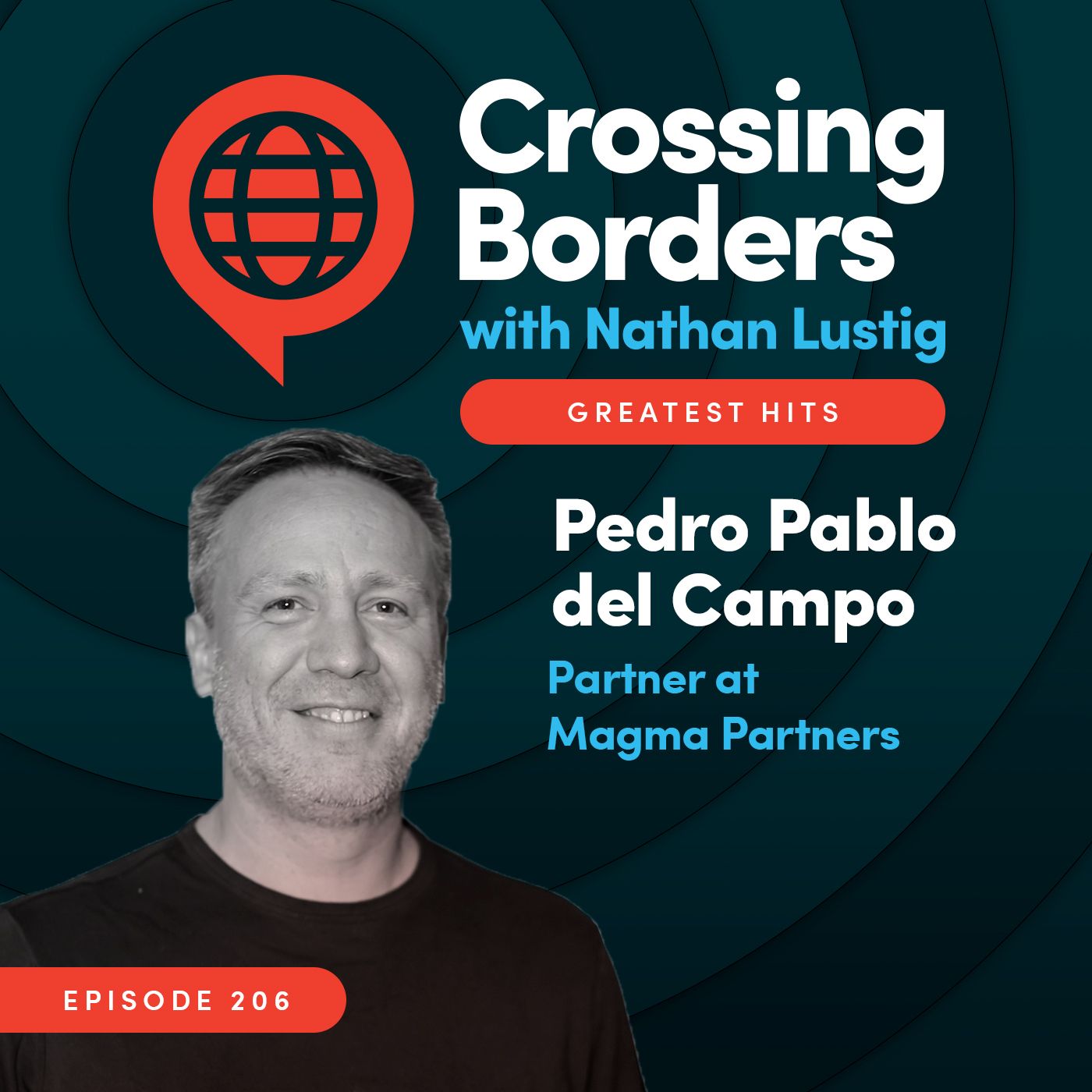
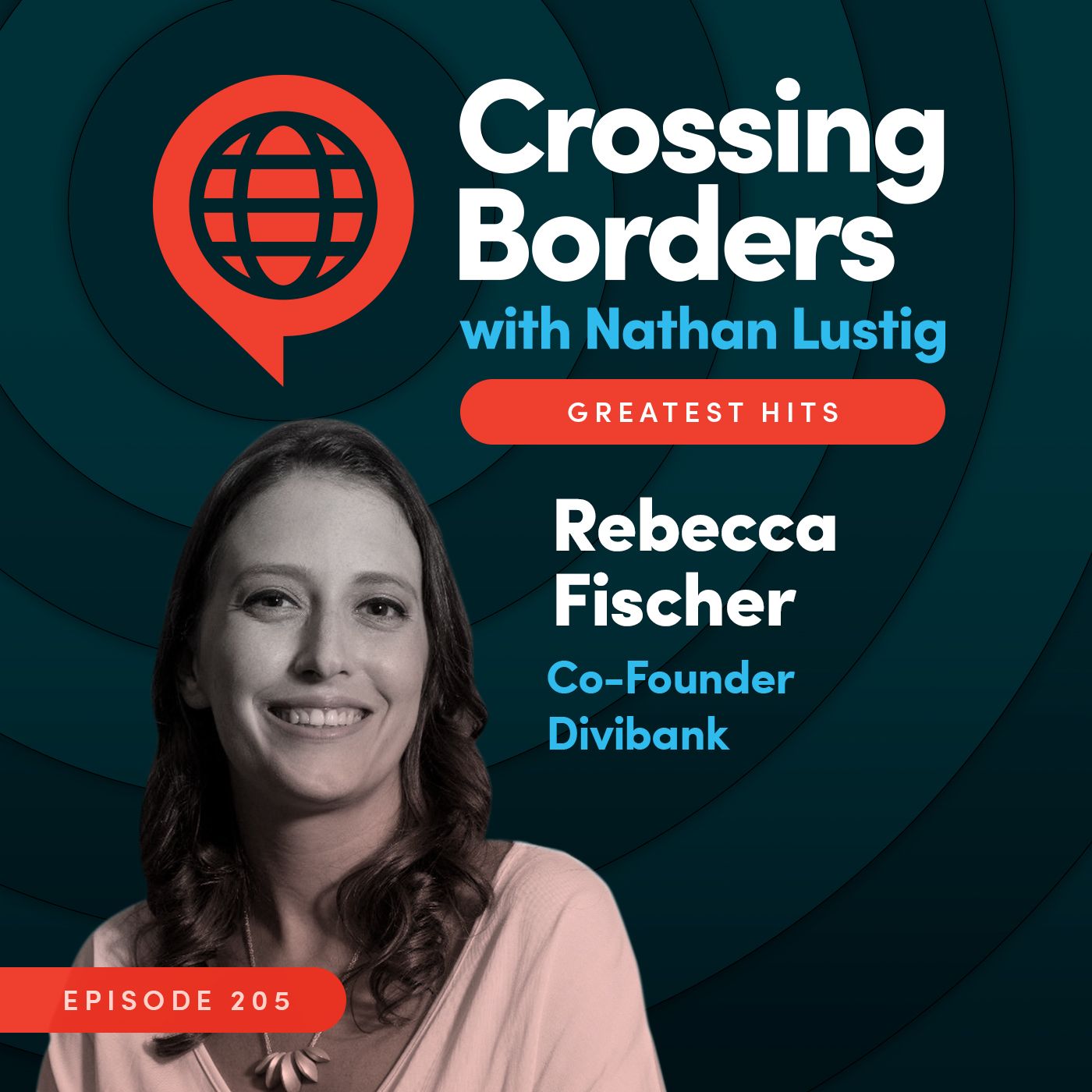
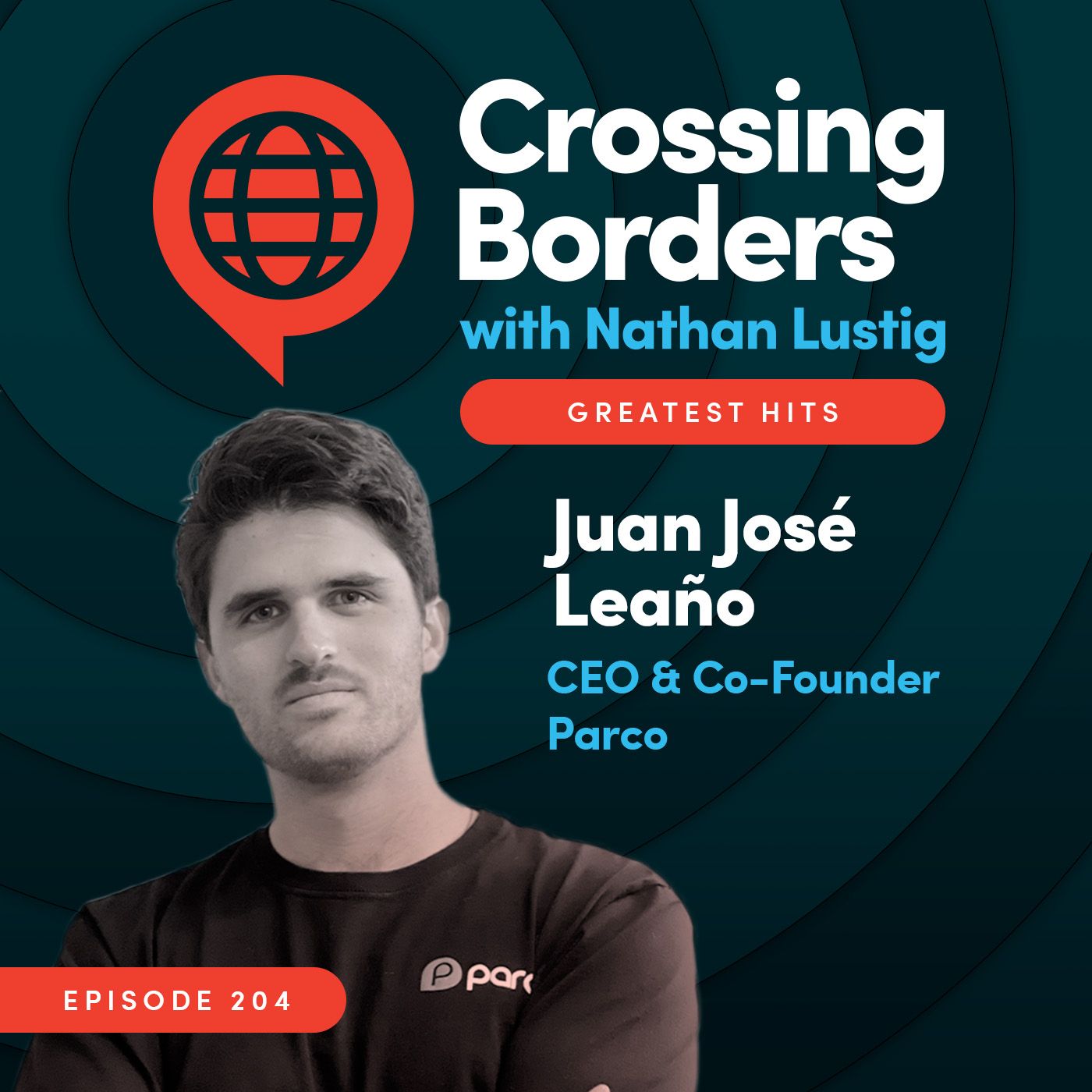
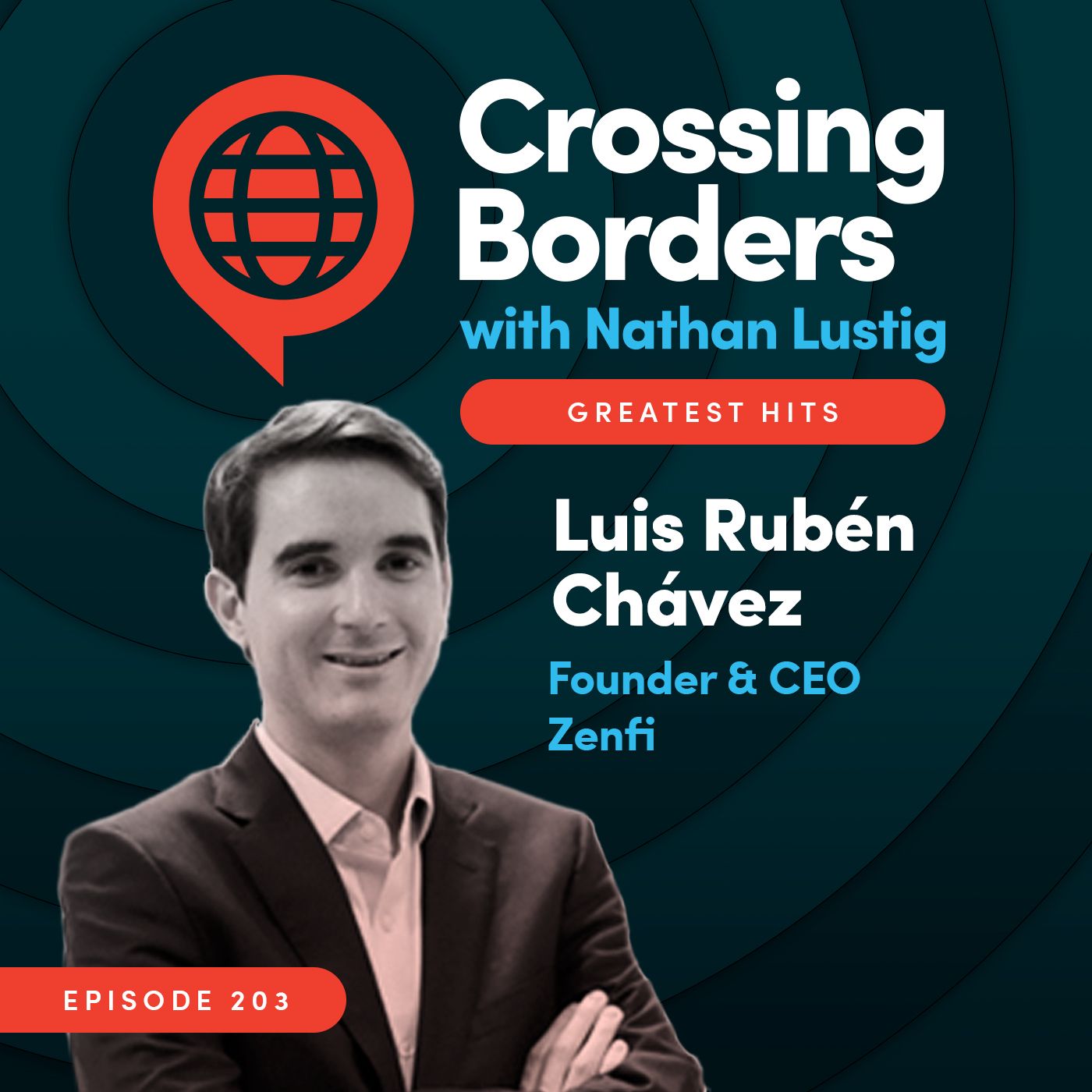
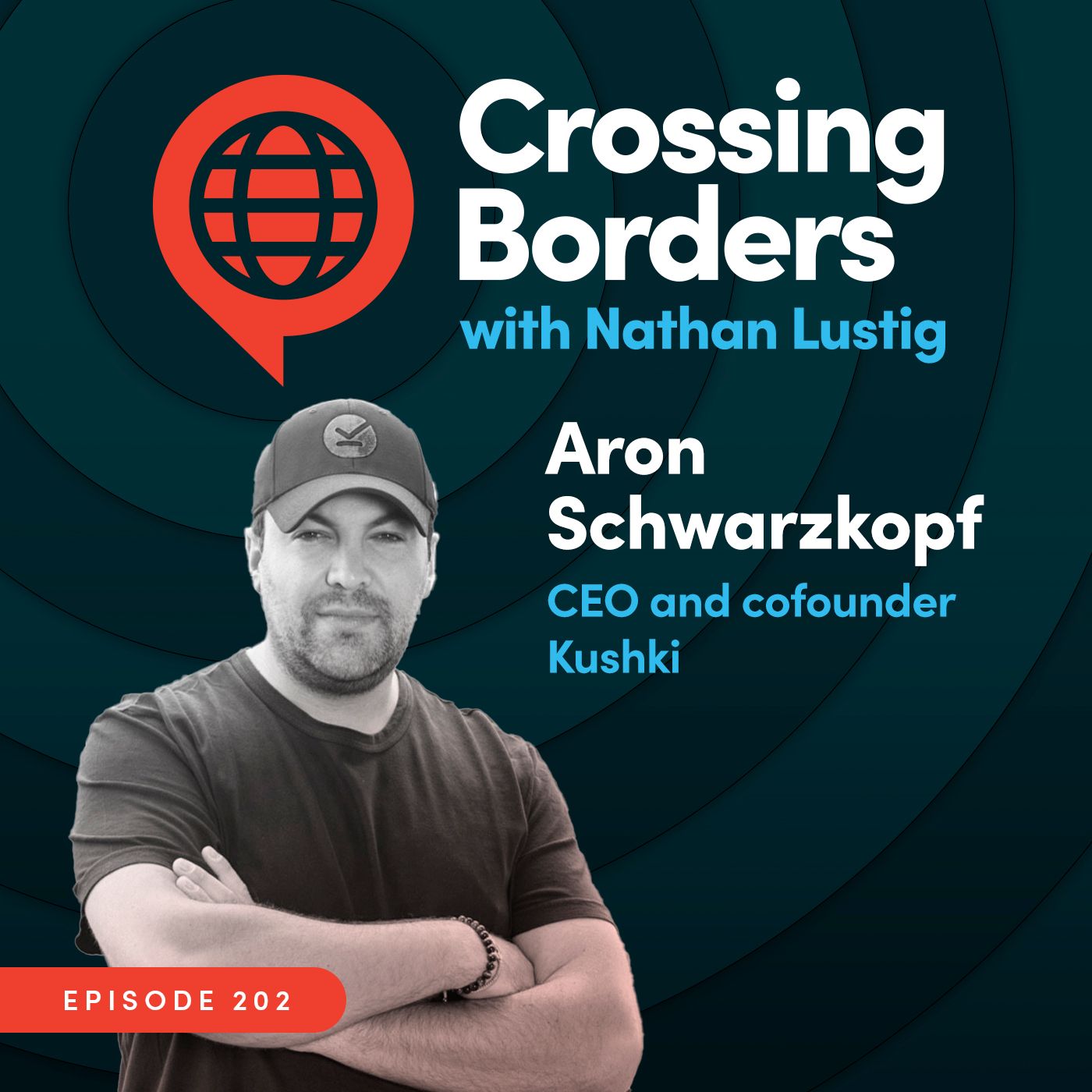
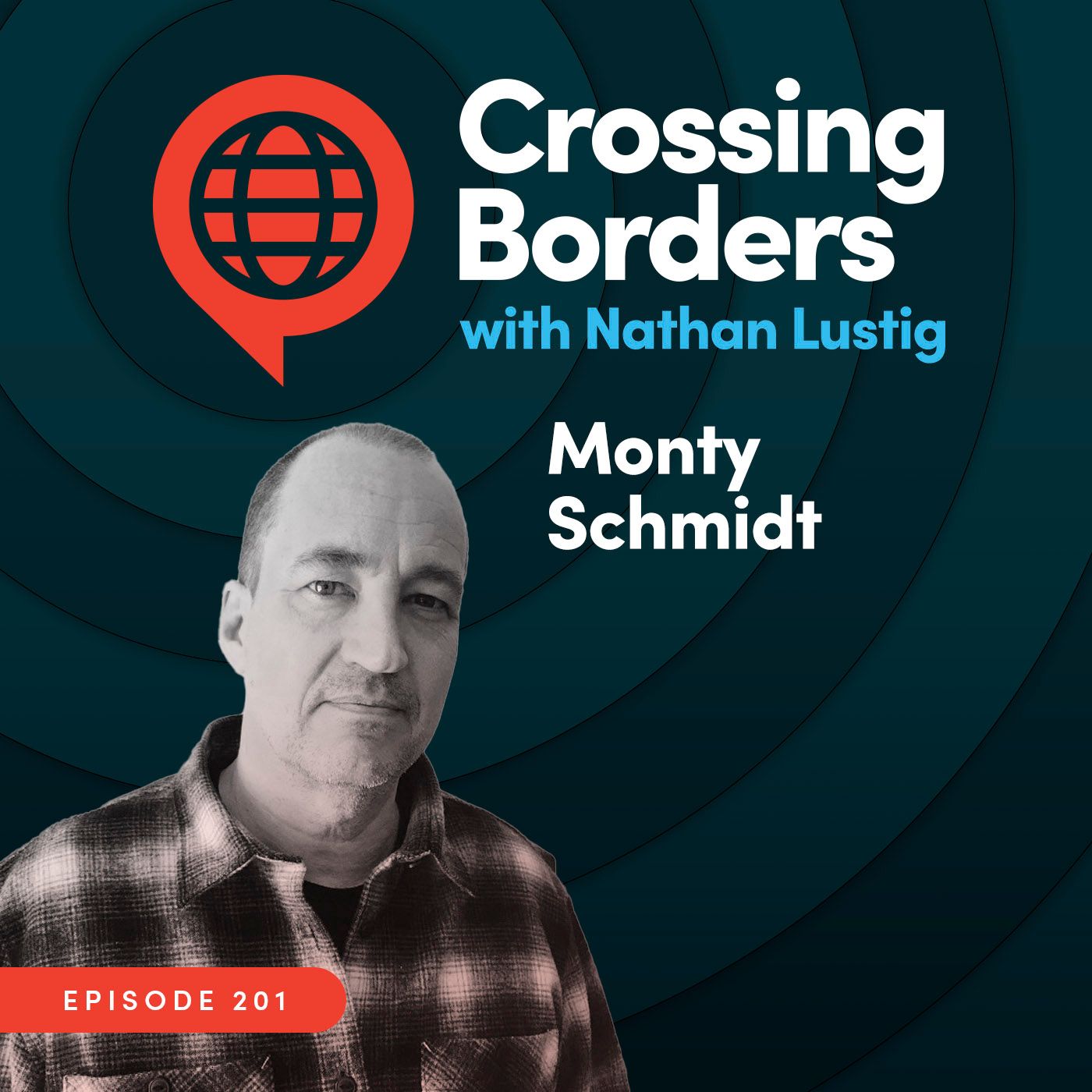
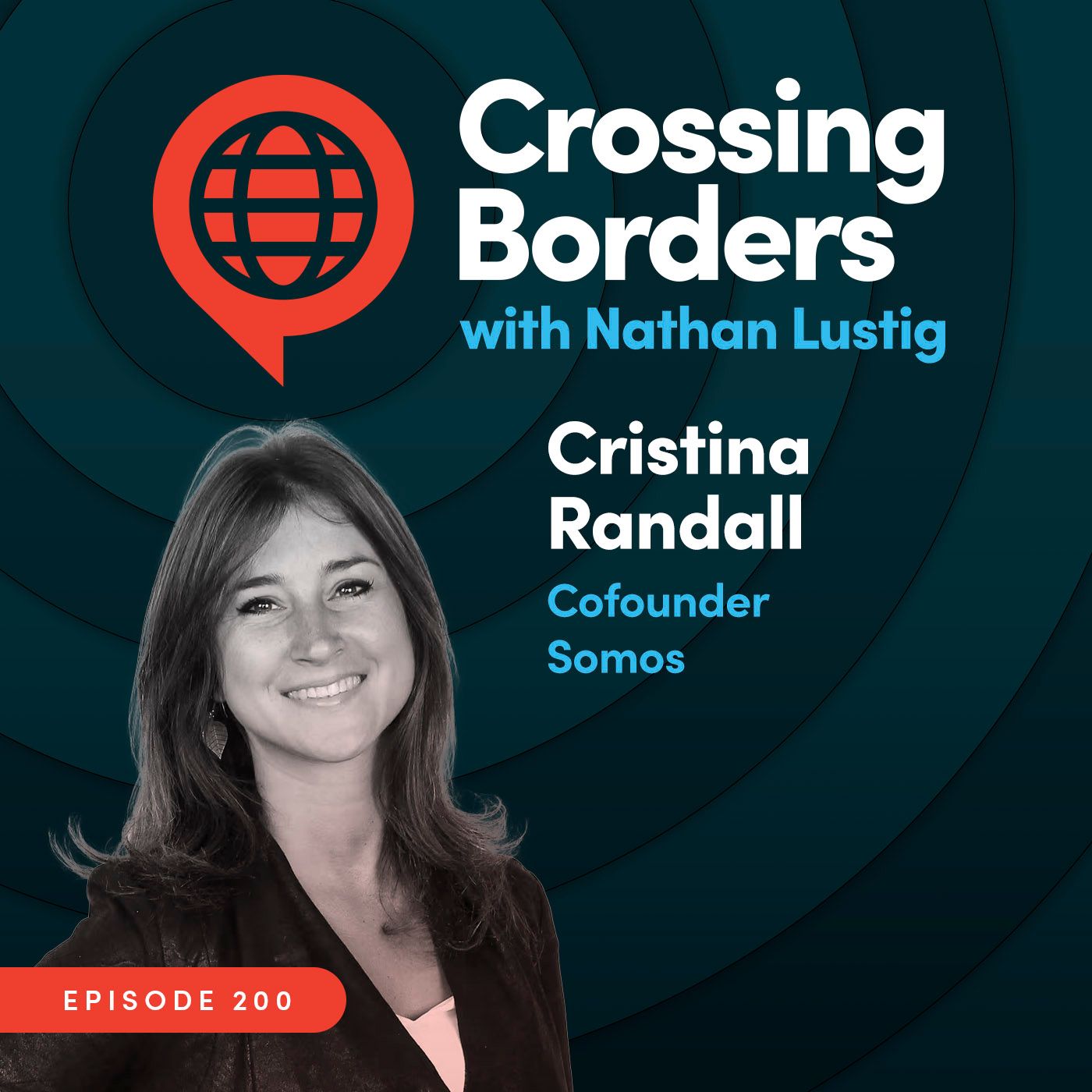
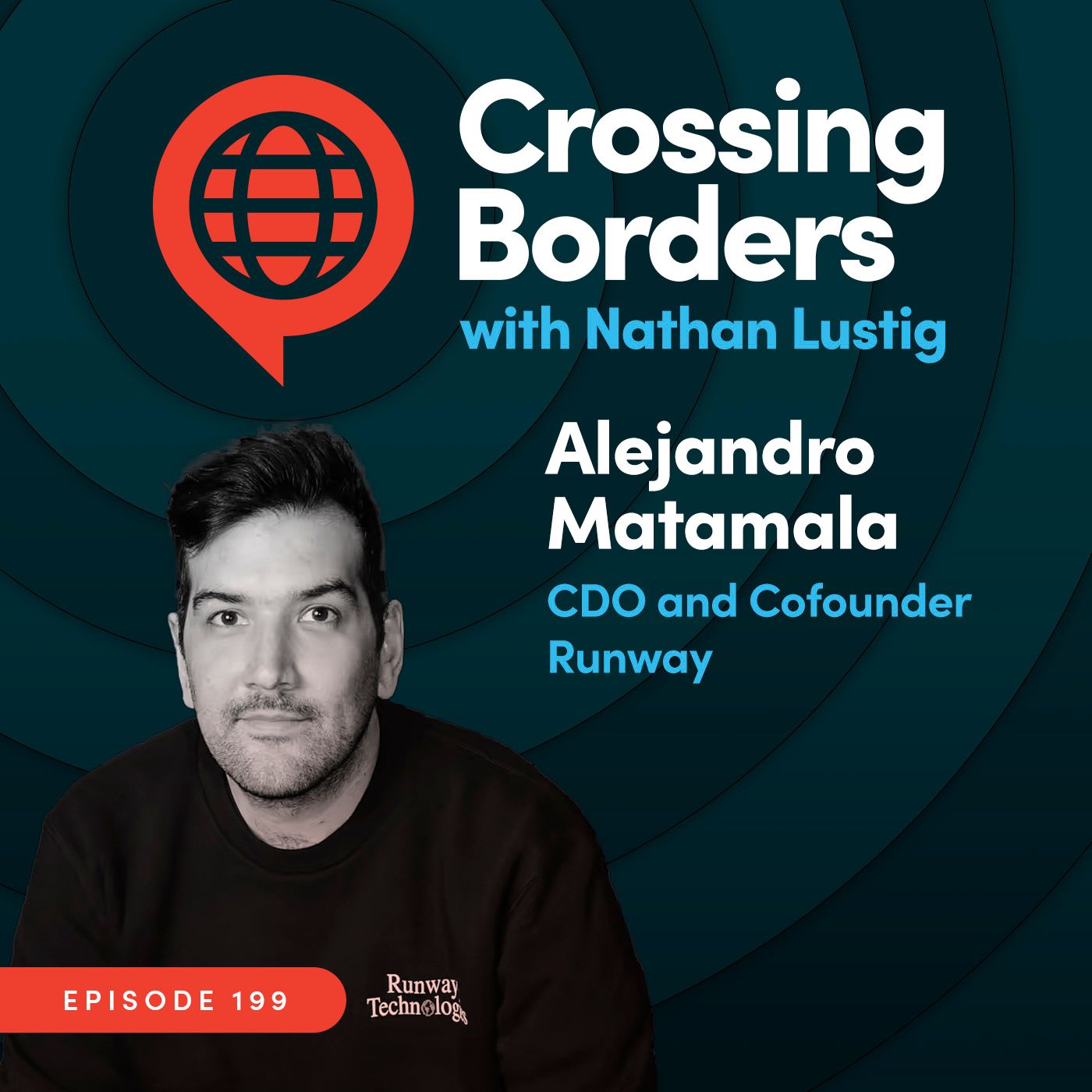
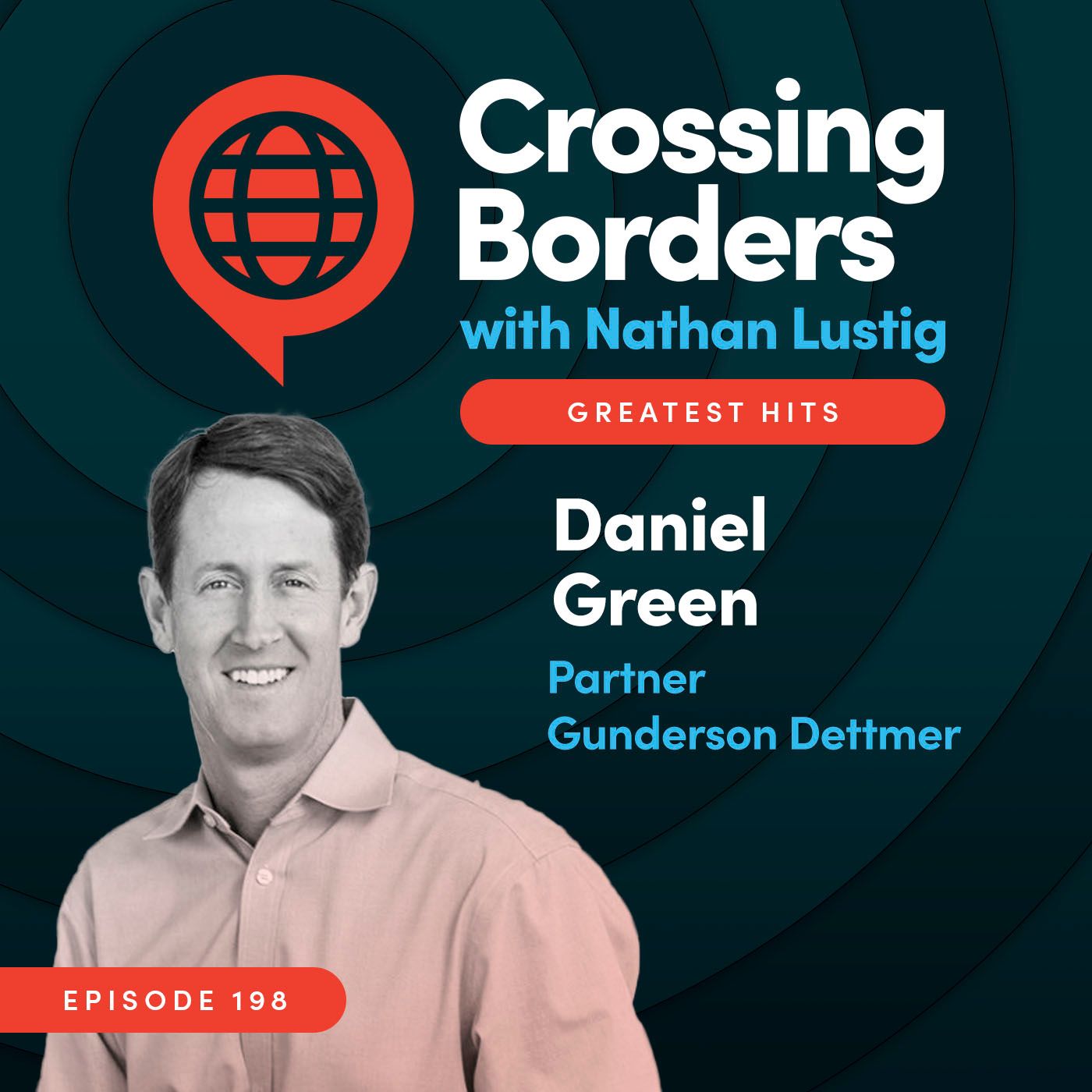
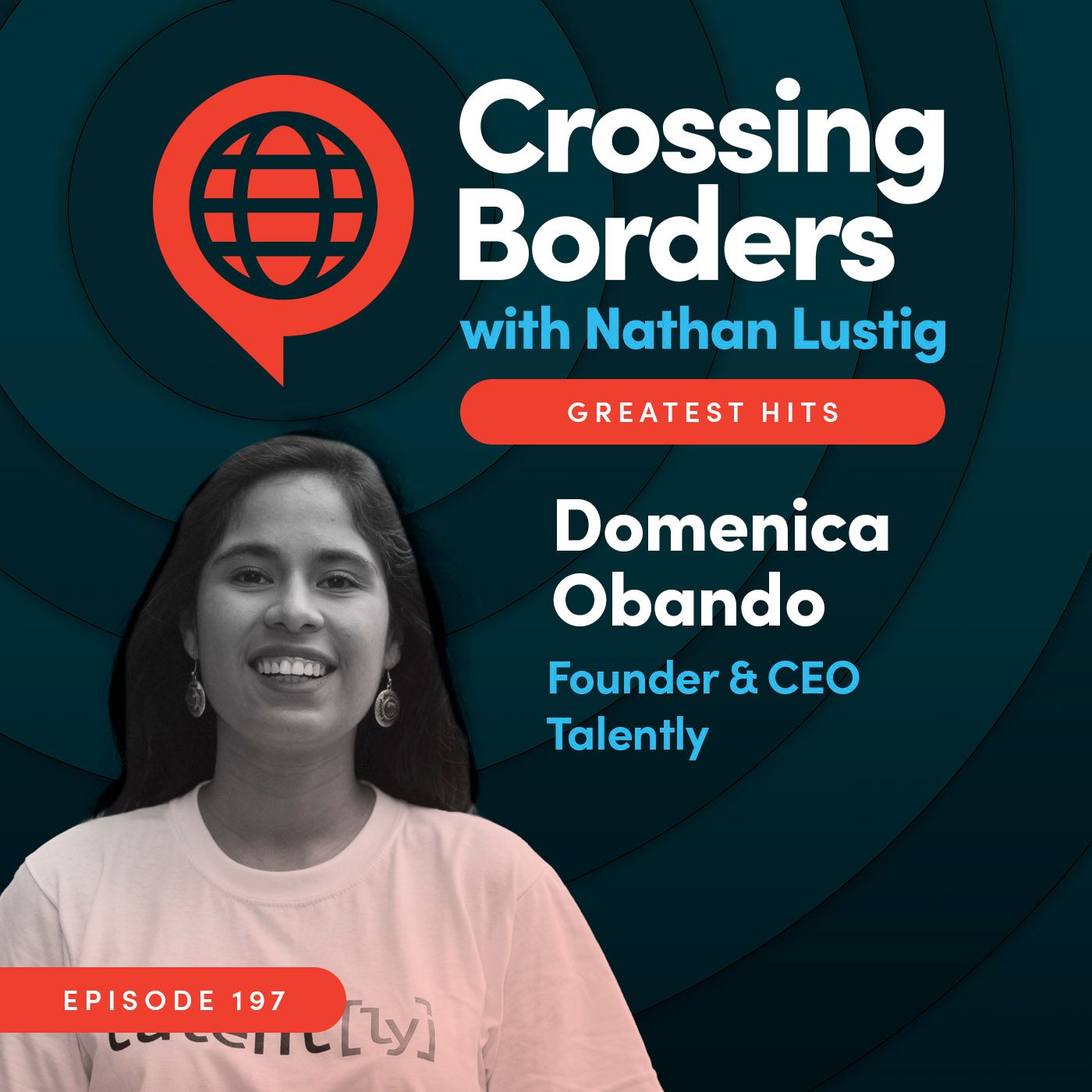
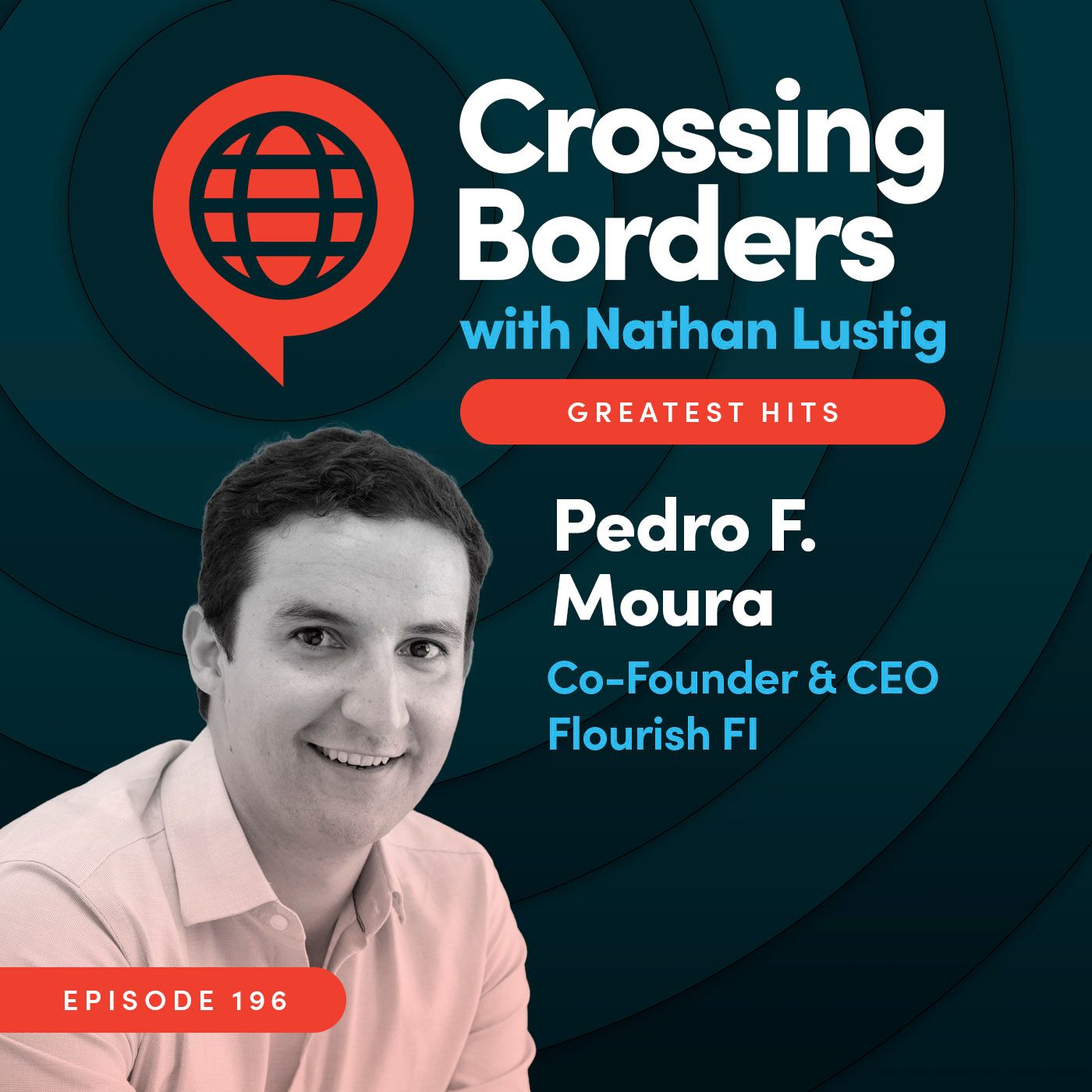
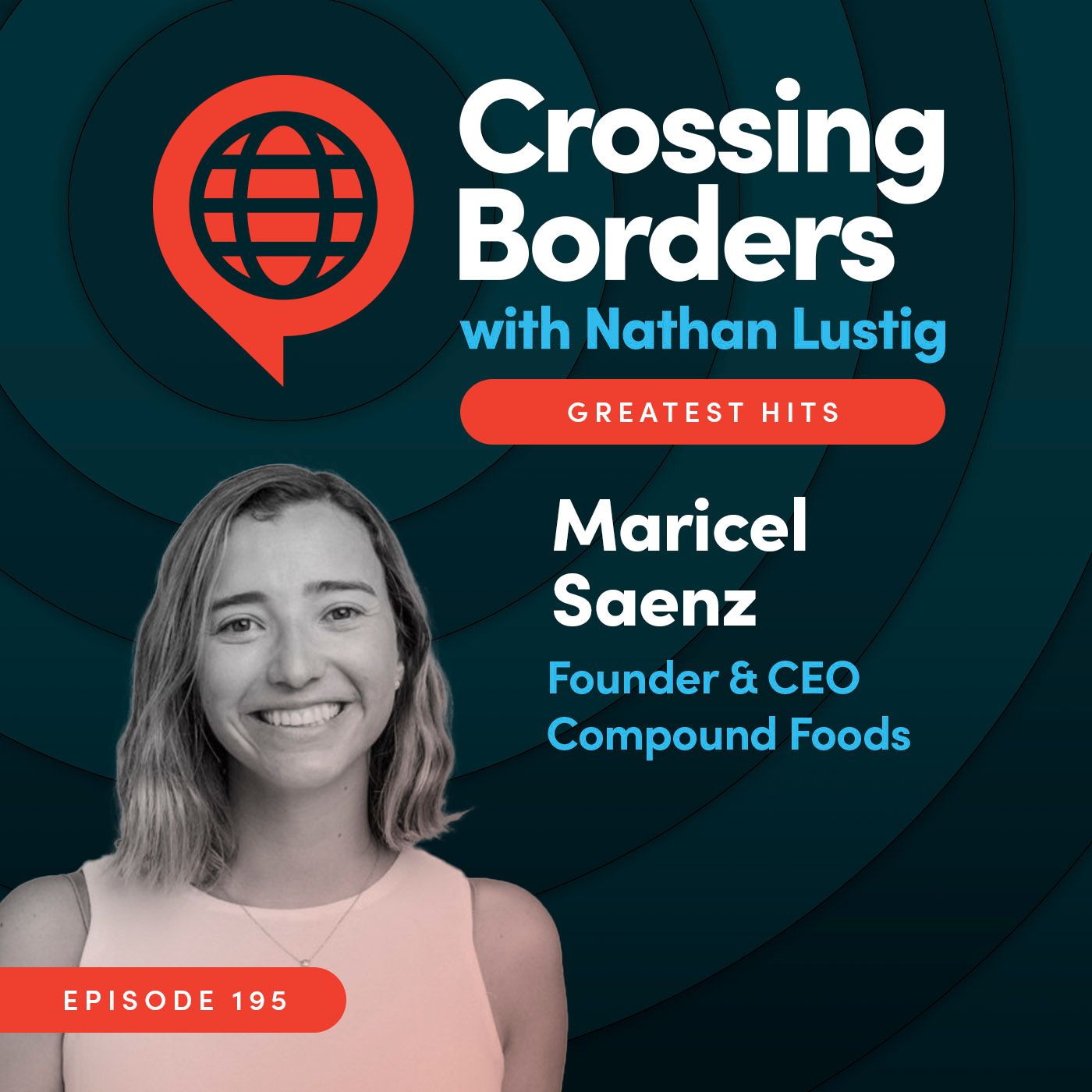
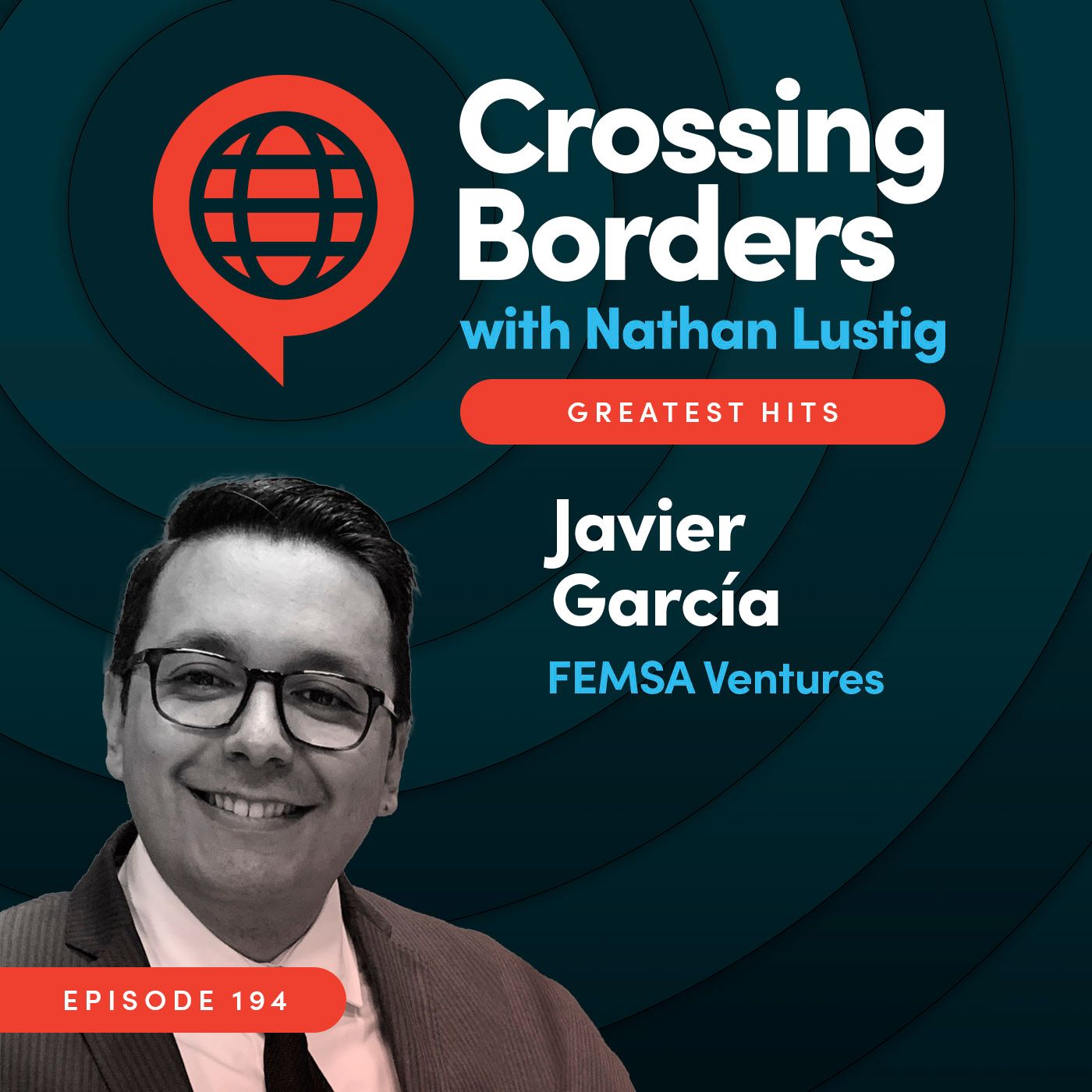
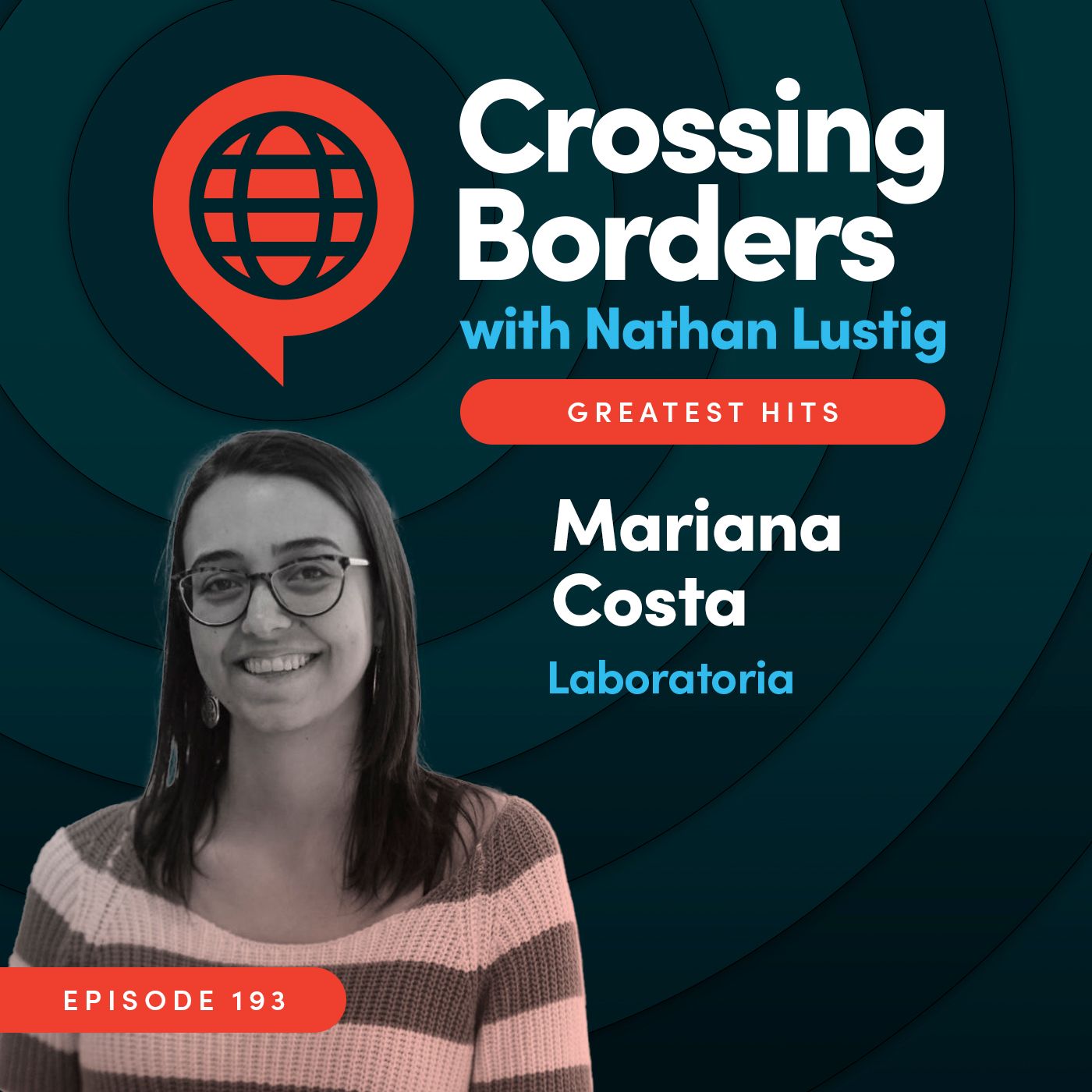
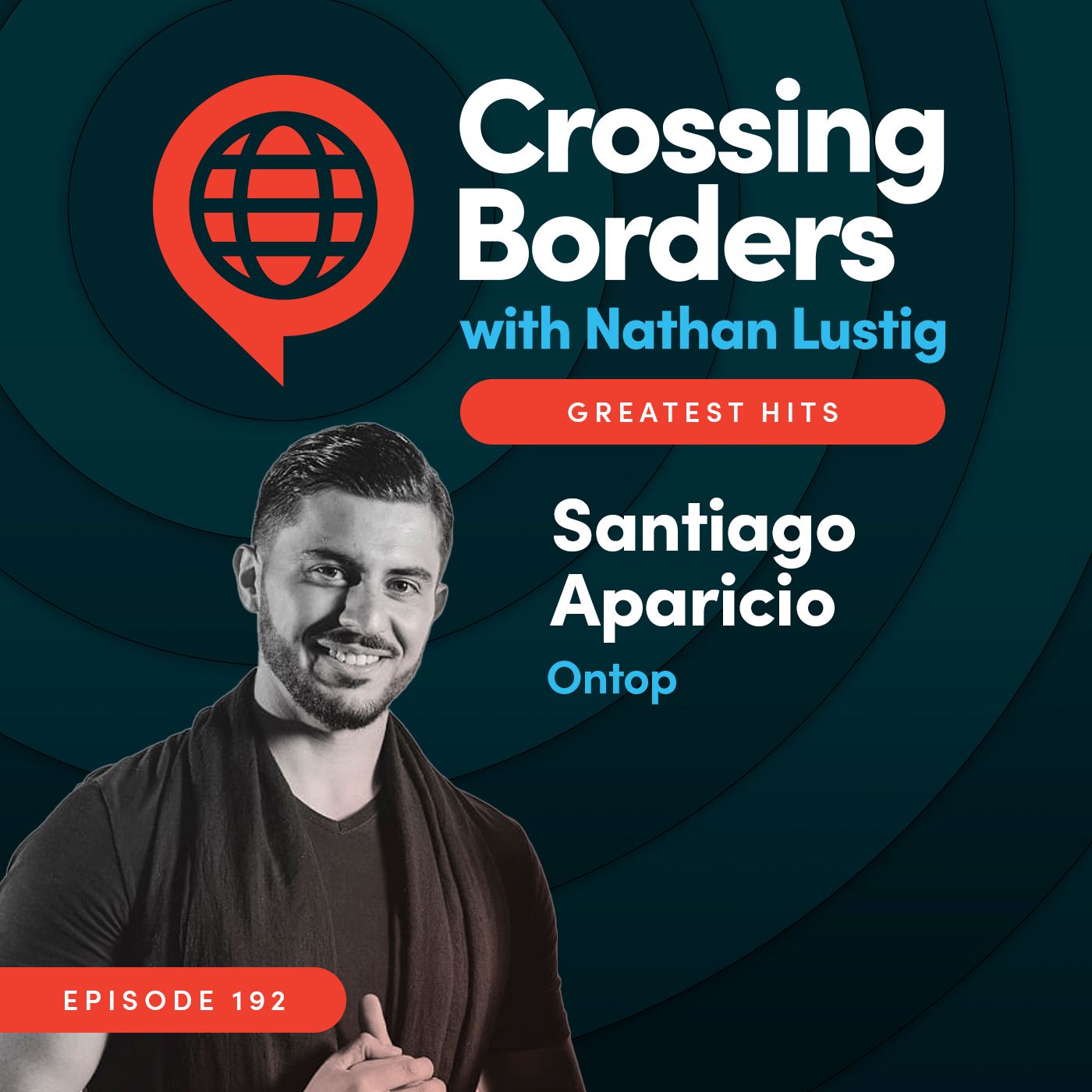
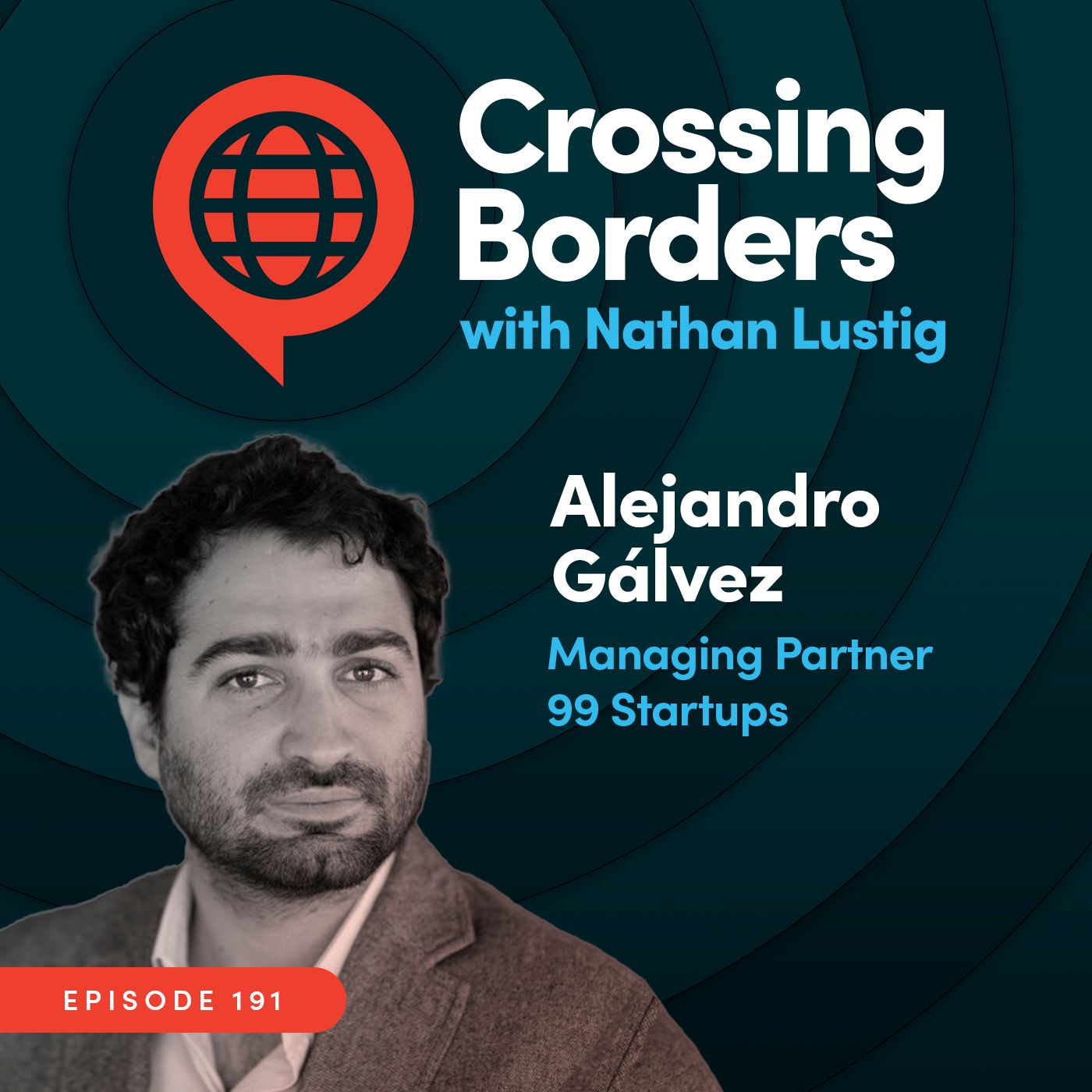
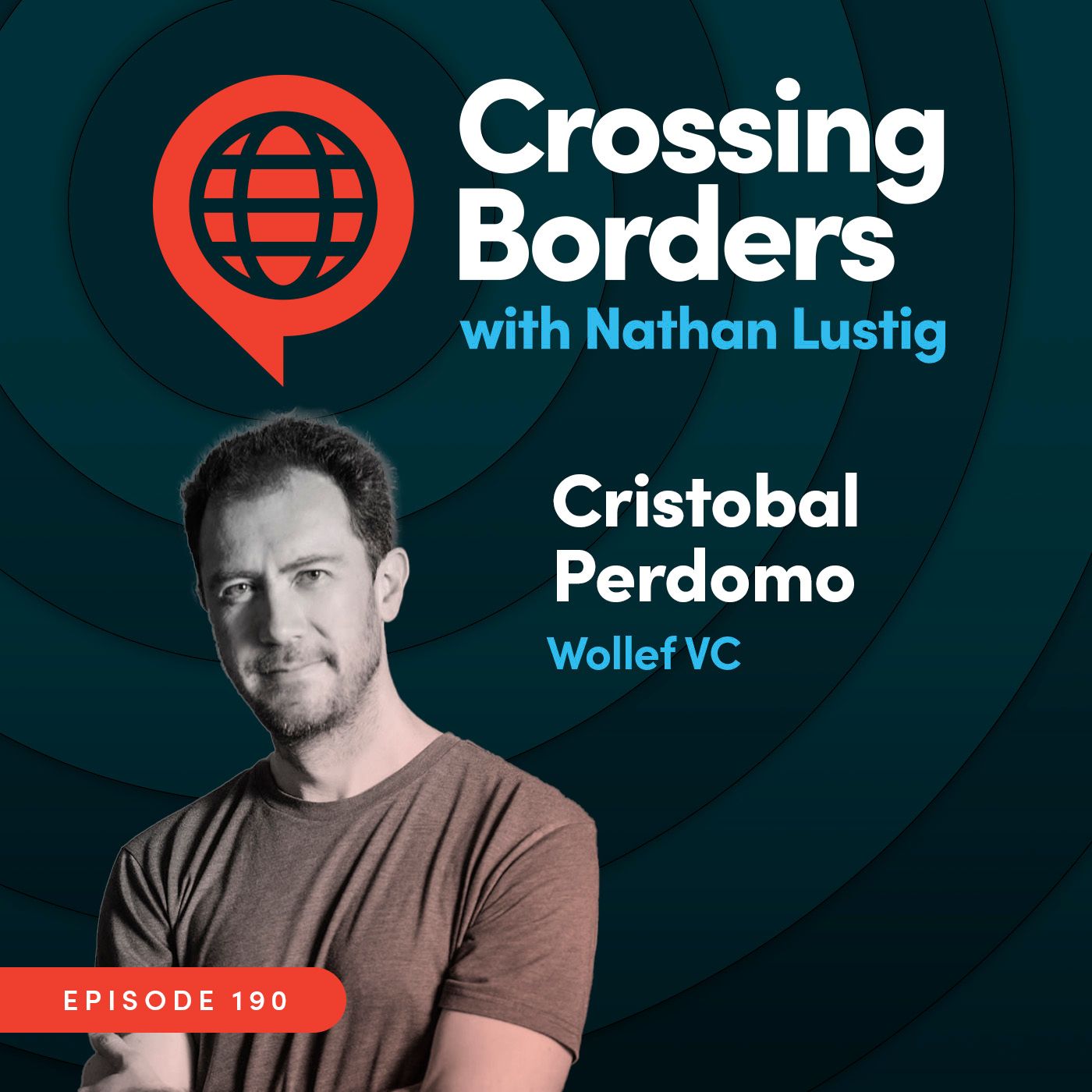
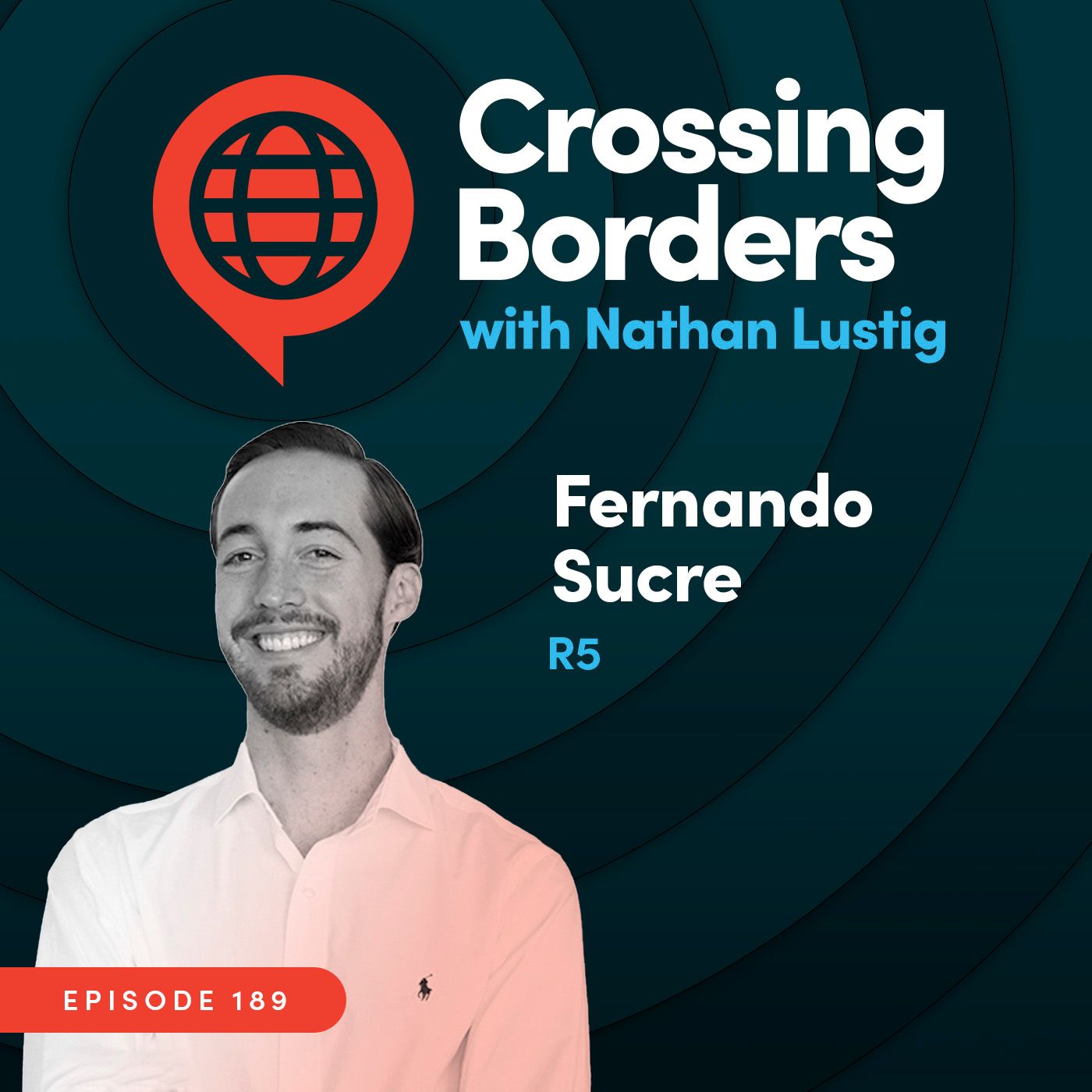
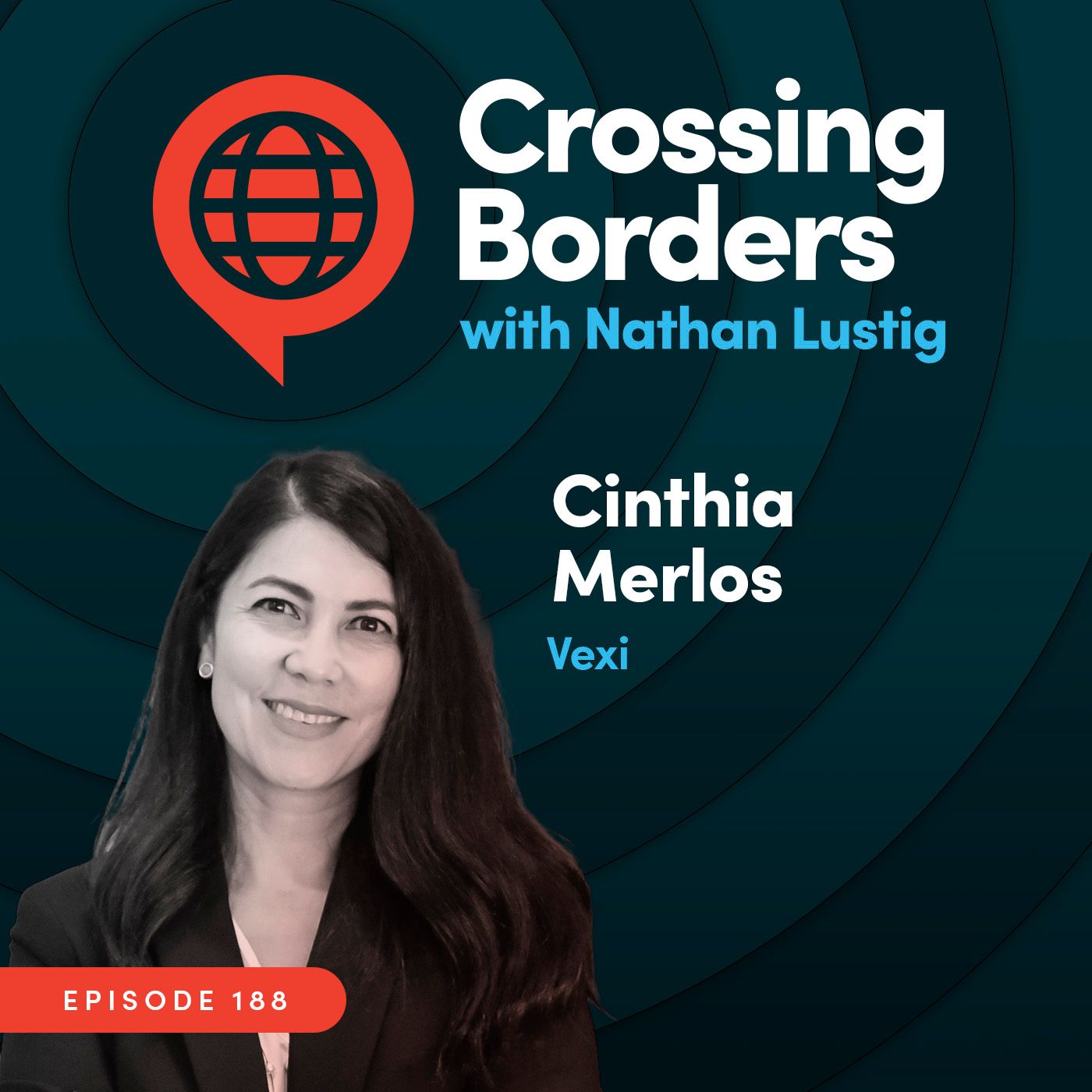
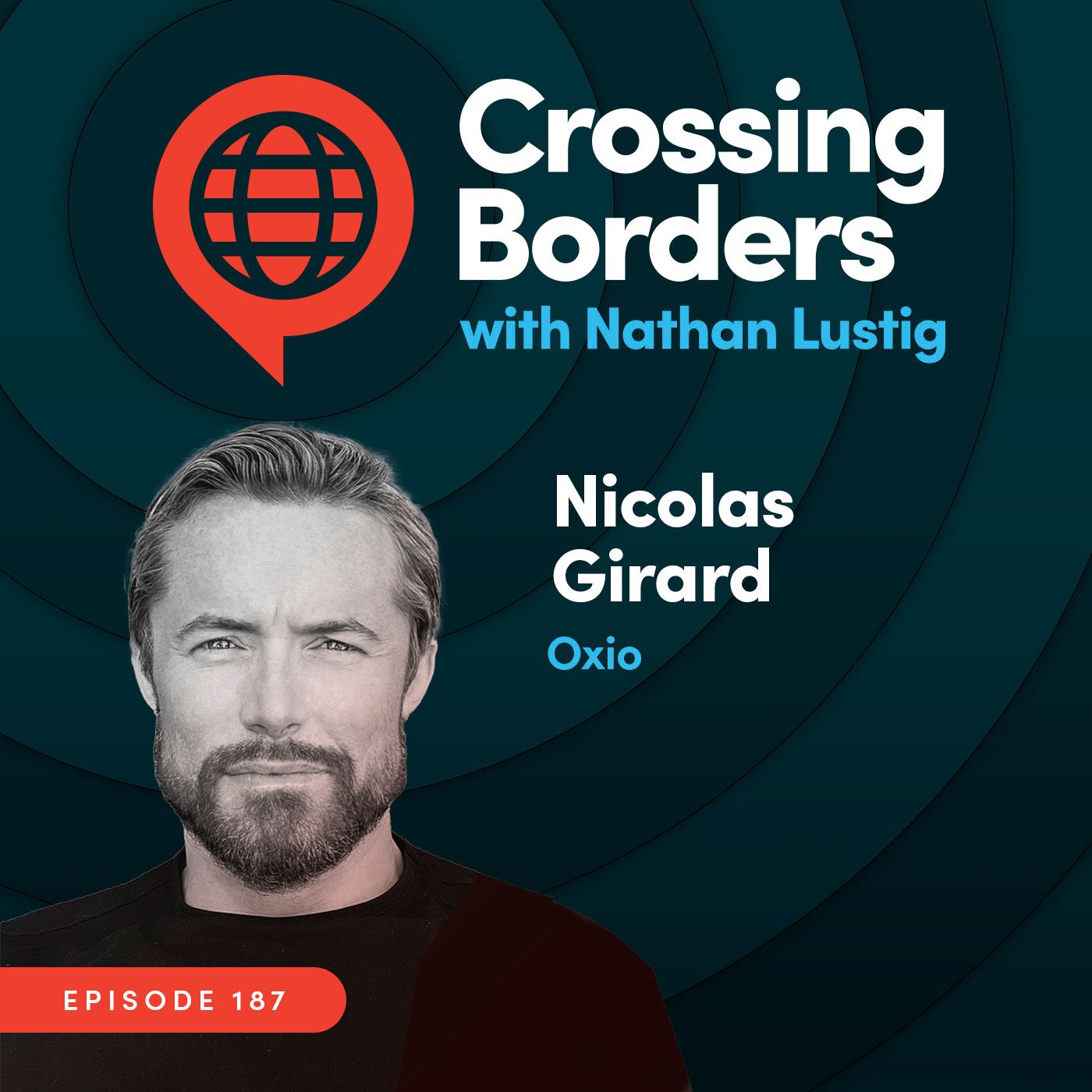



great episode and tips. I knew some of them but others didn't have a clue. very helpful!!
Great Podcast, learning so much and fast. Keep the good work. #Benchmark is key for success.